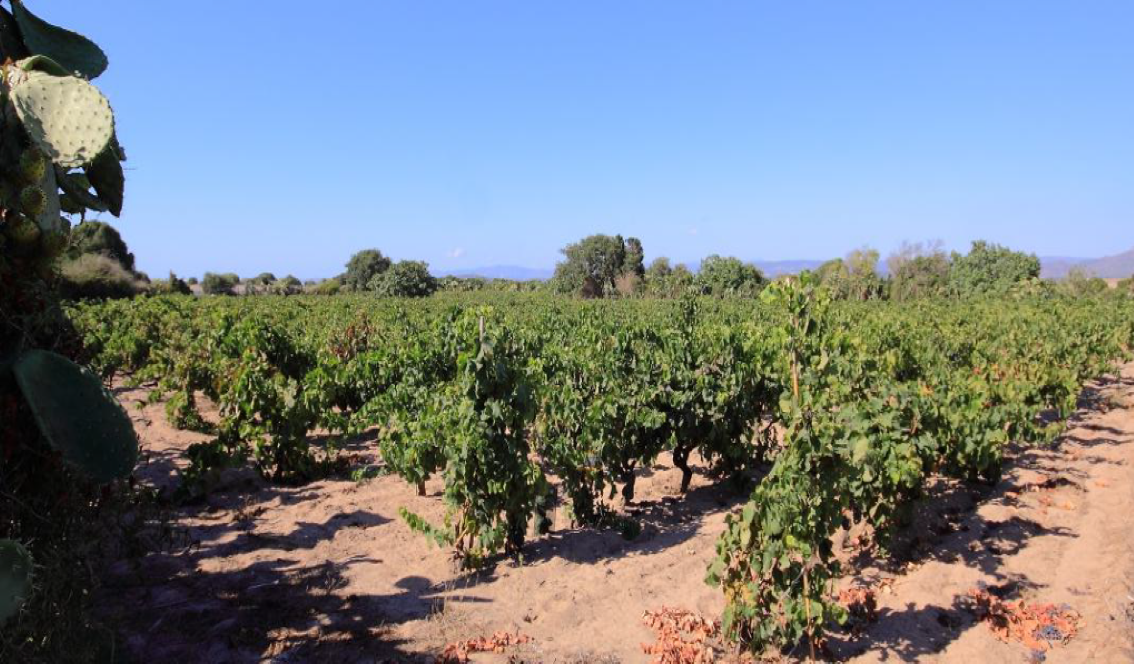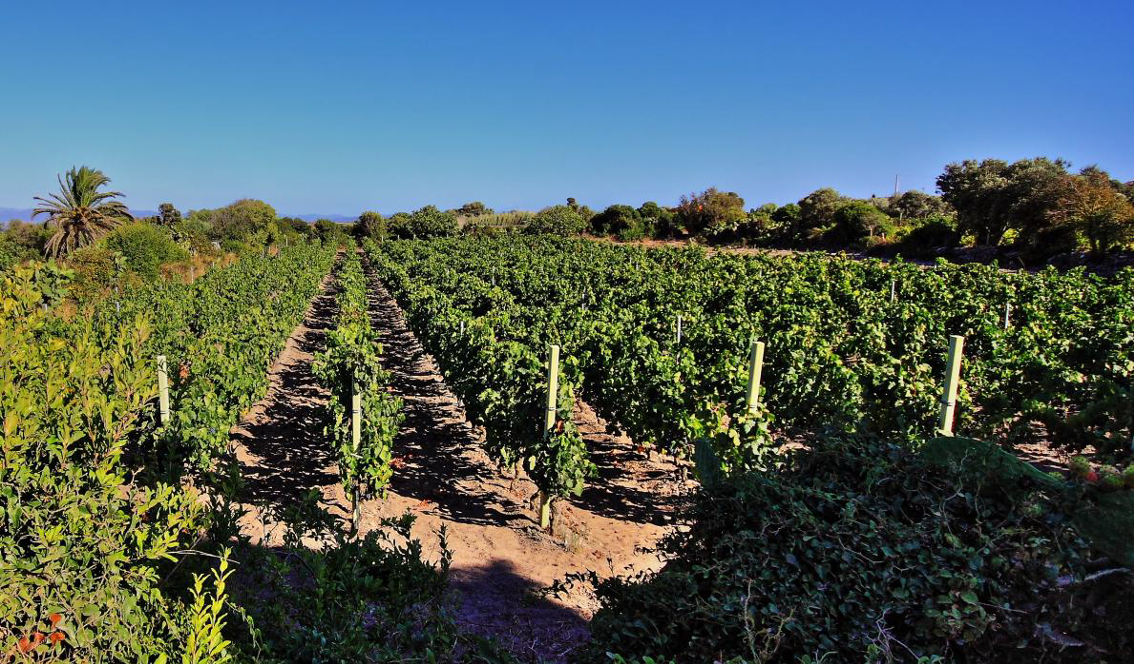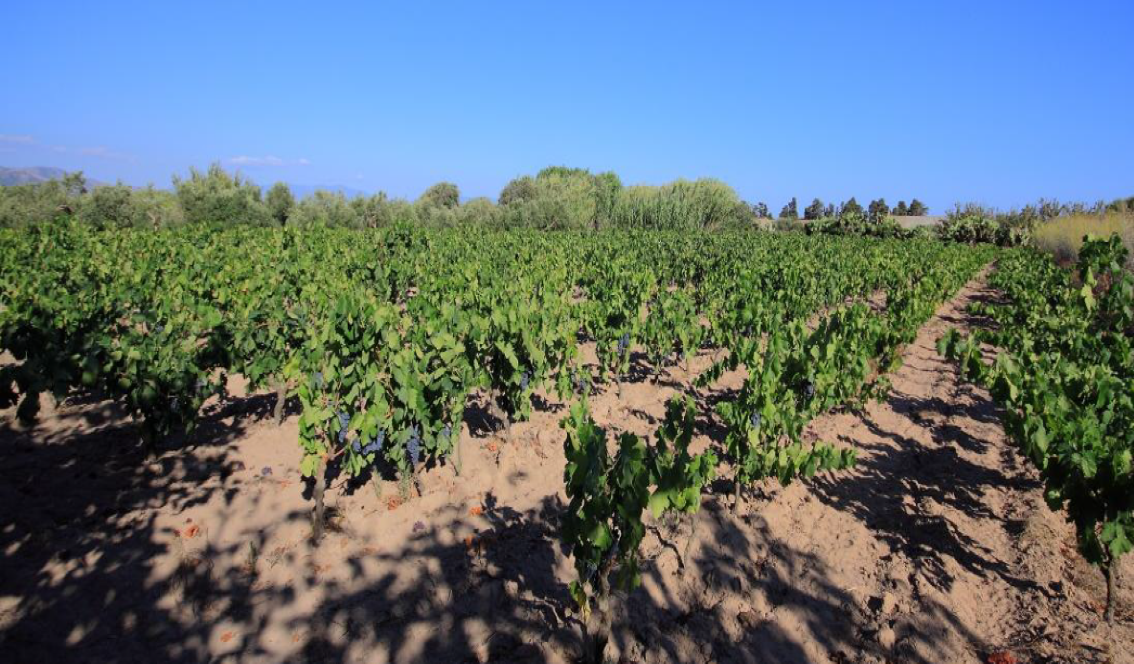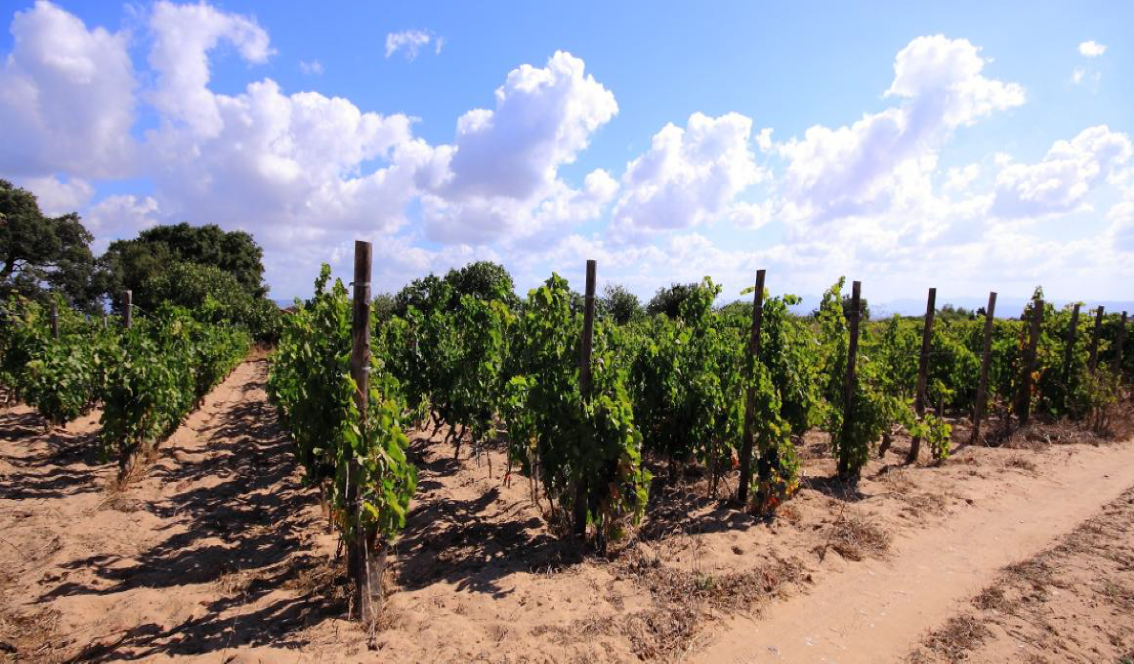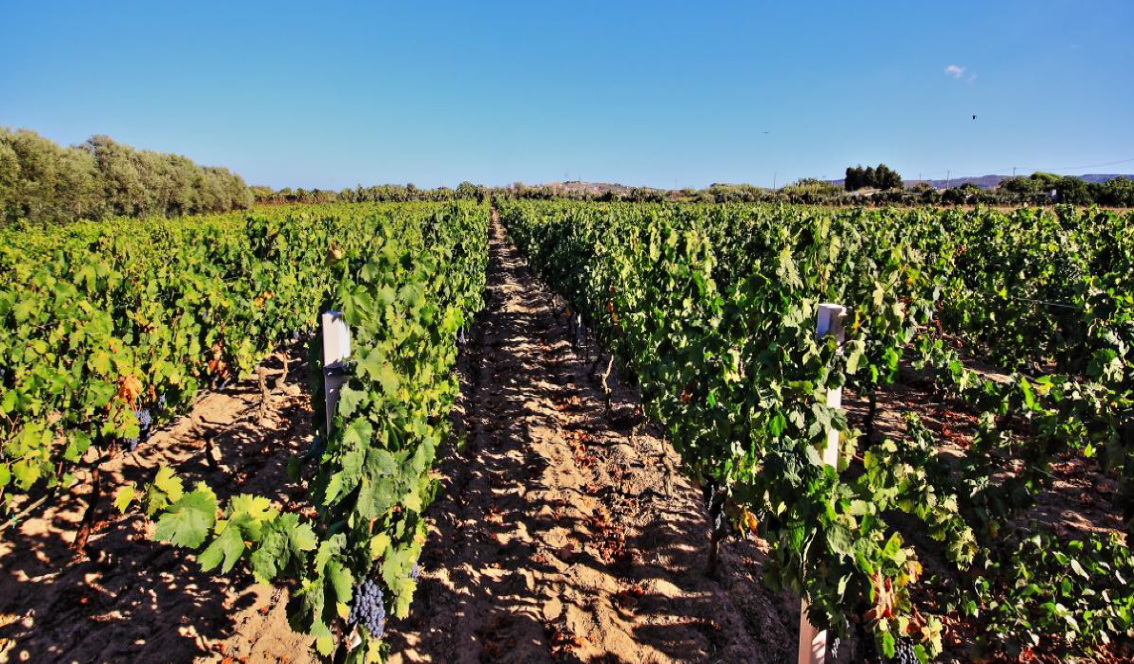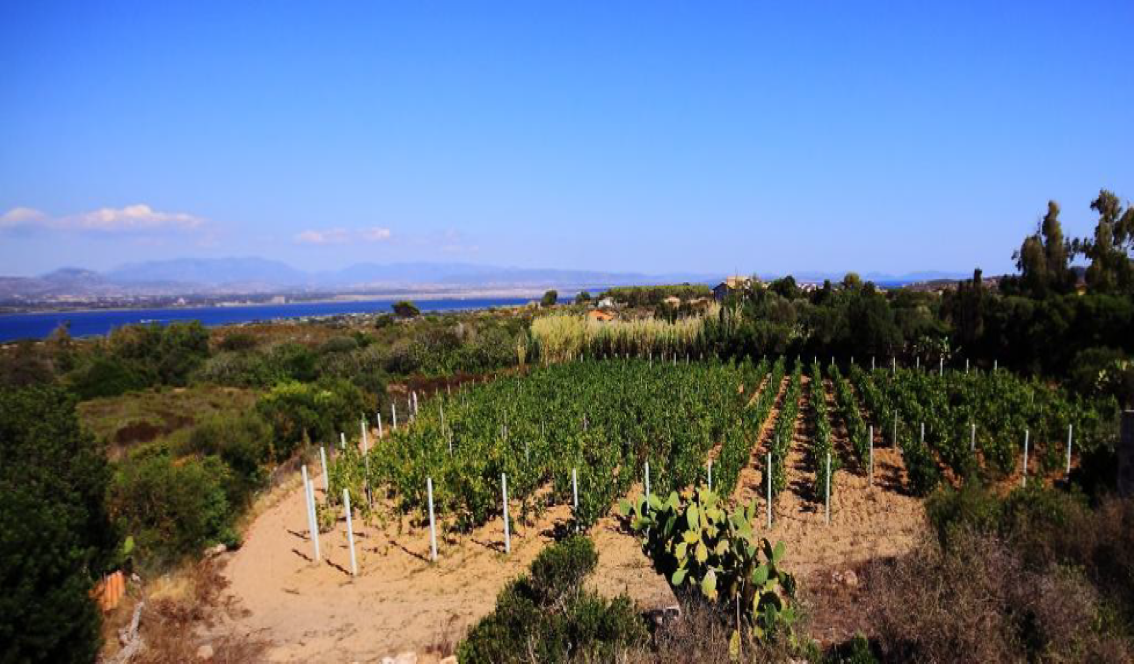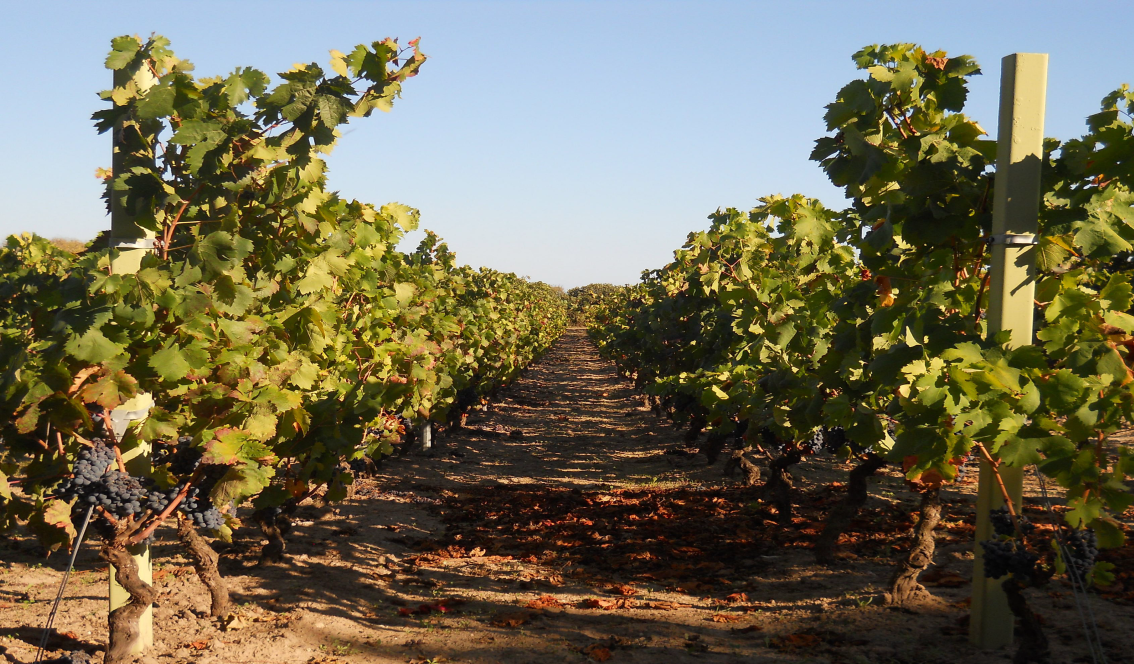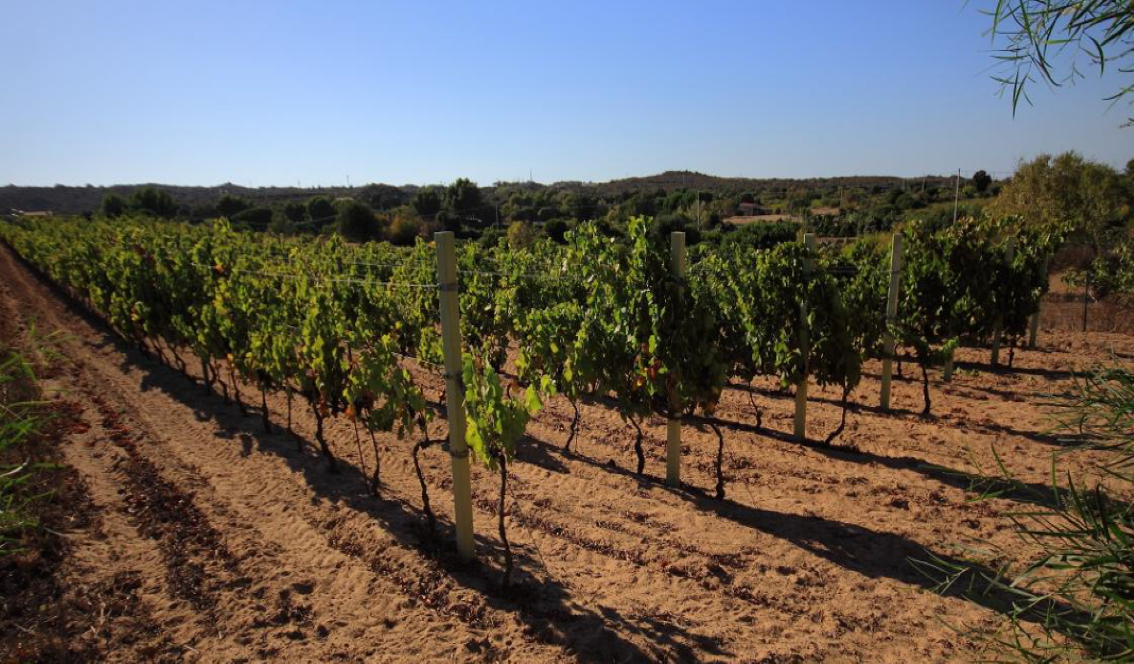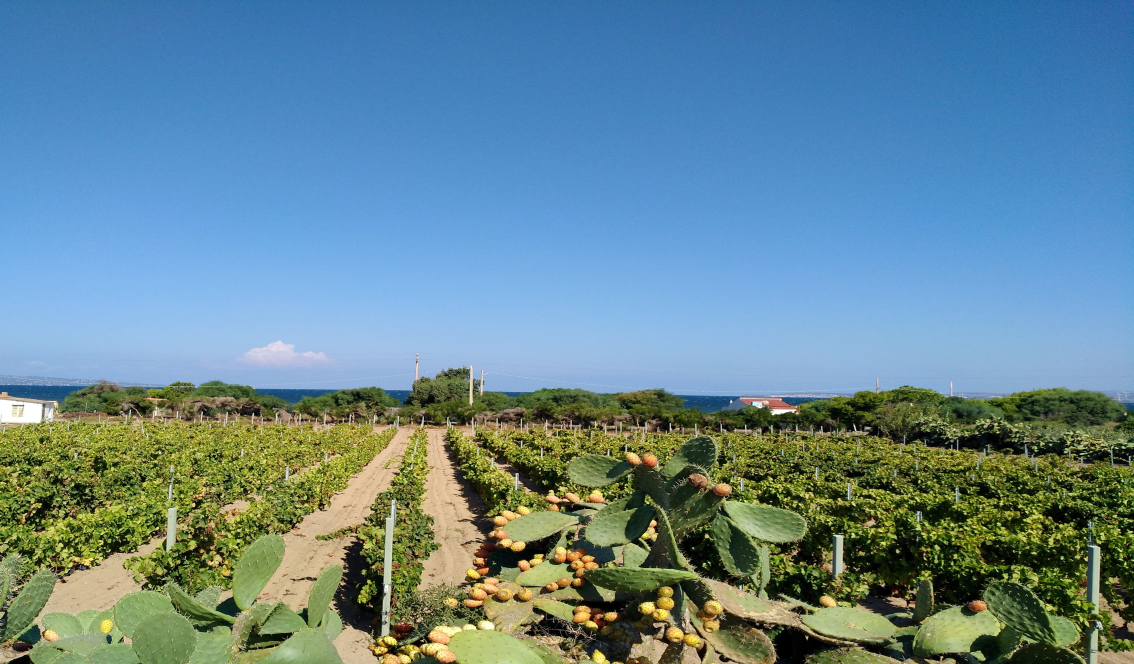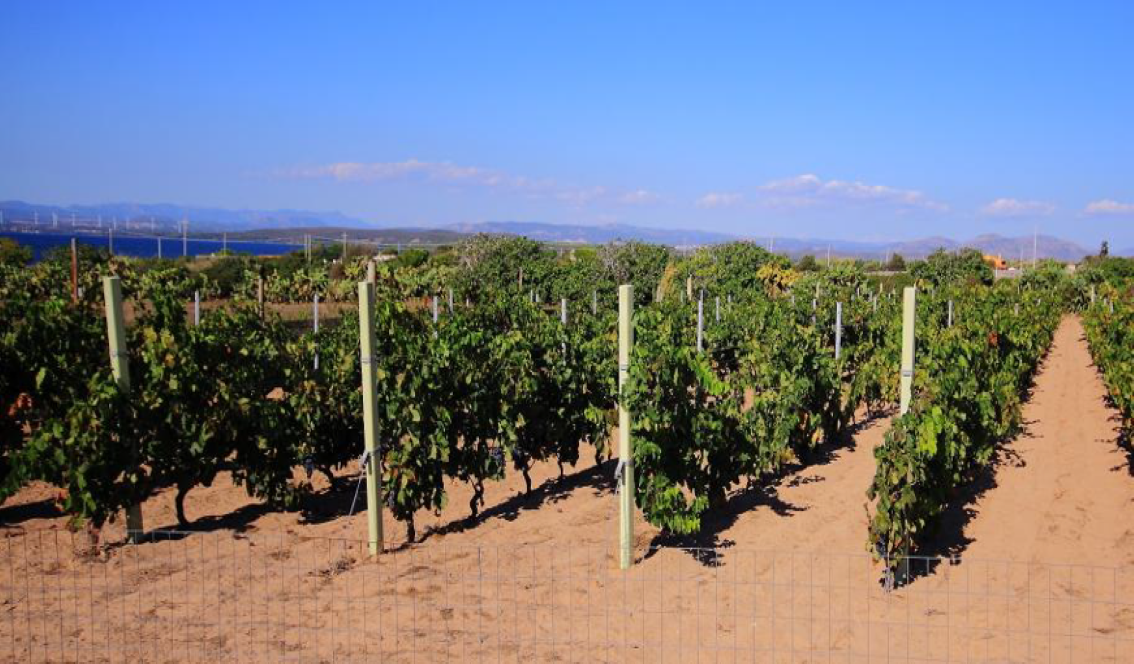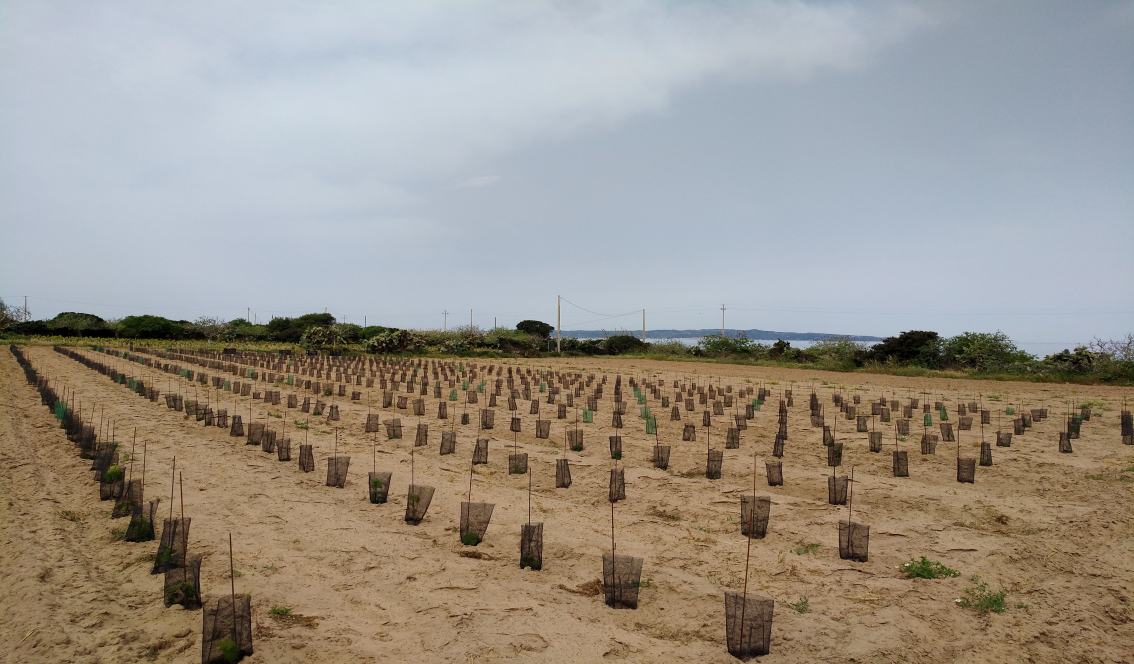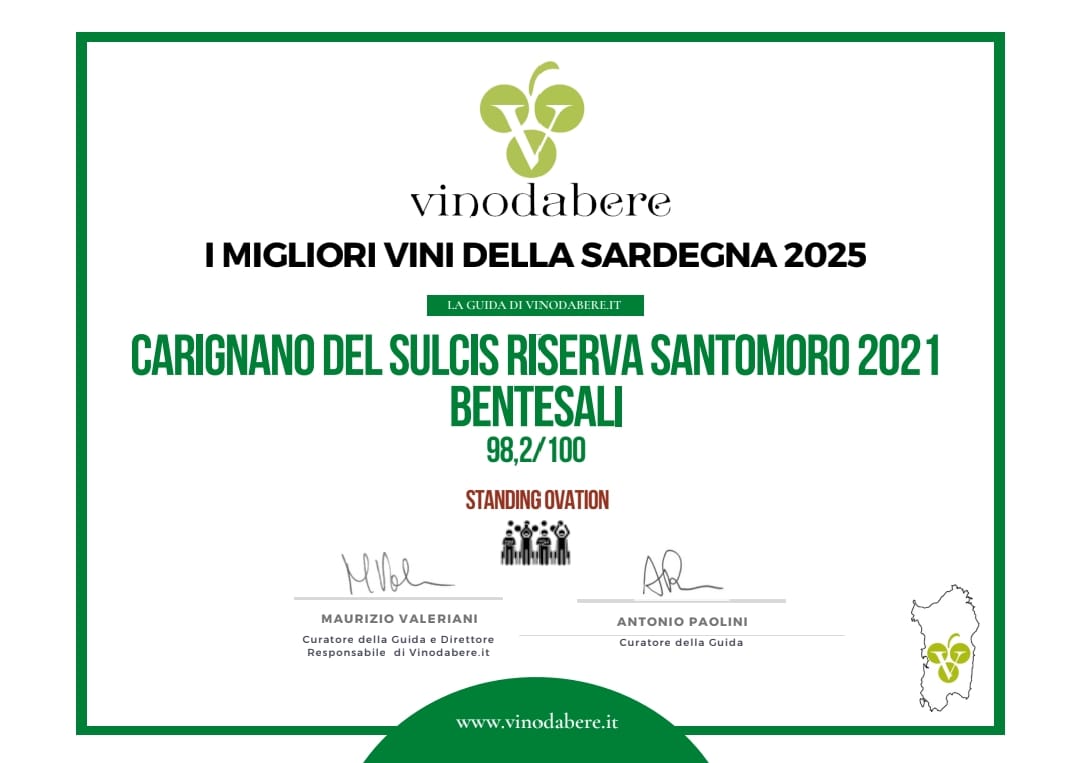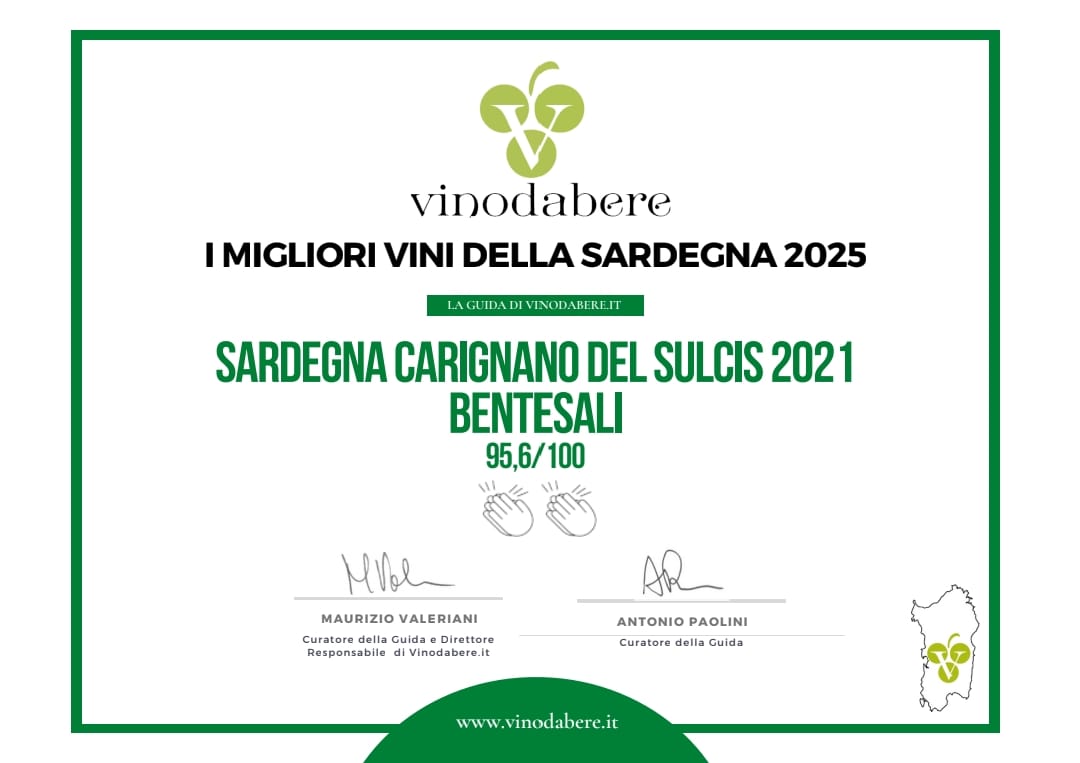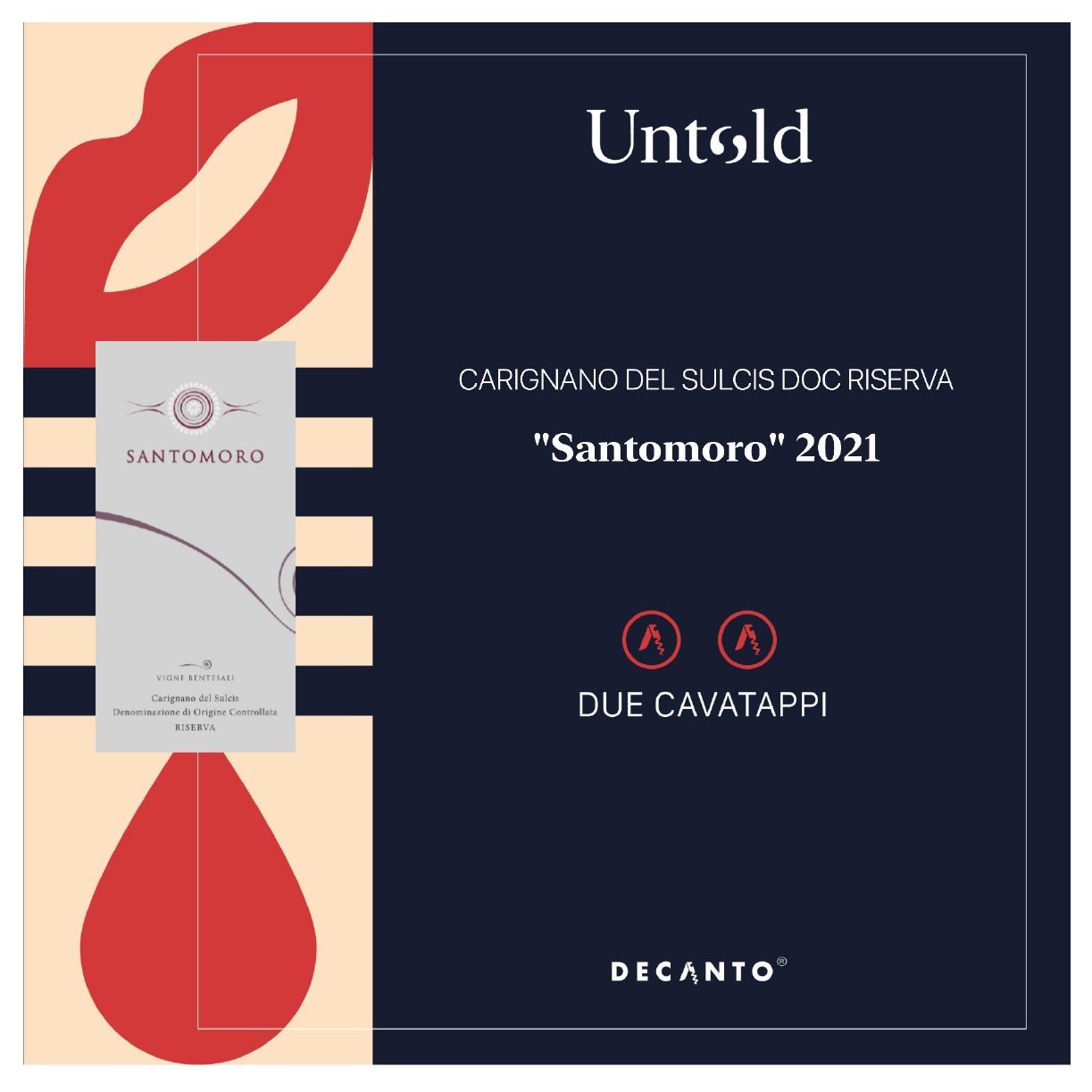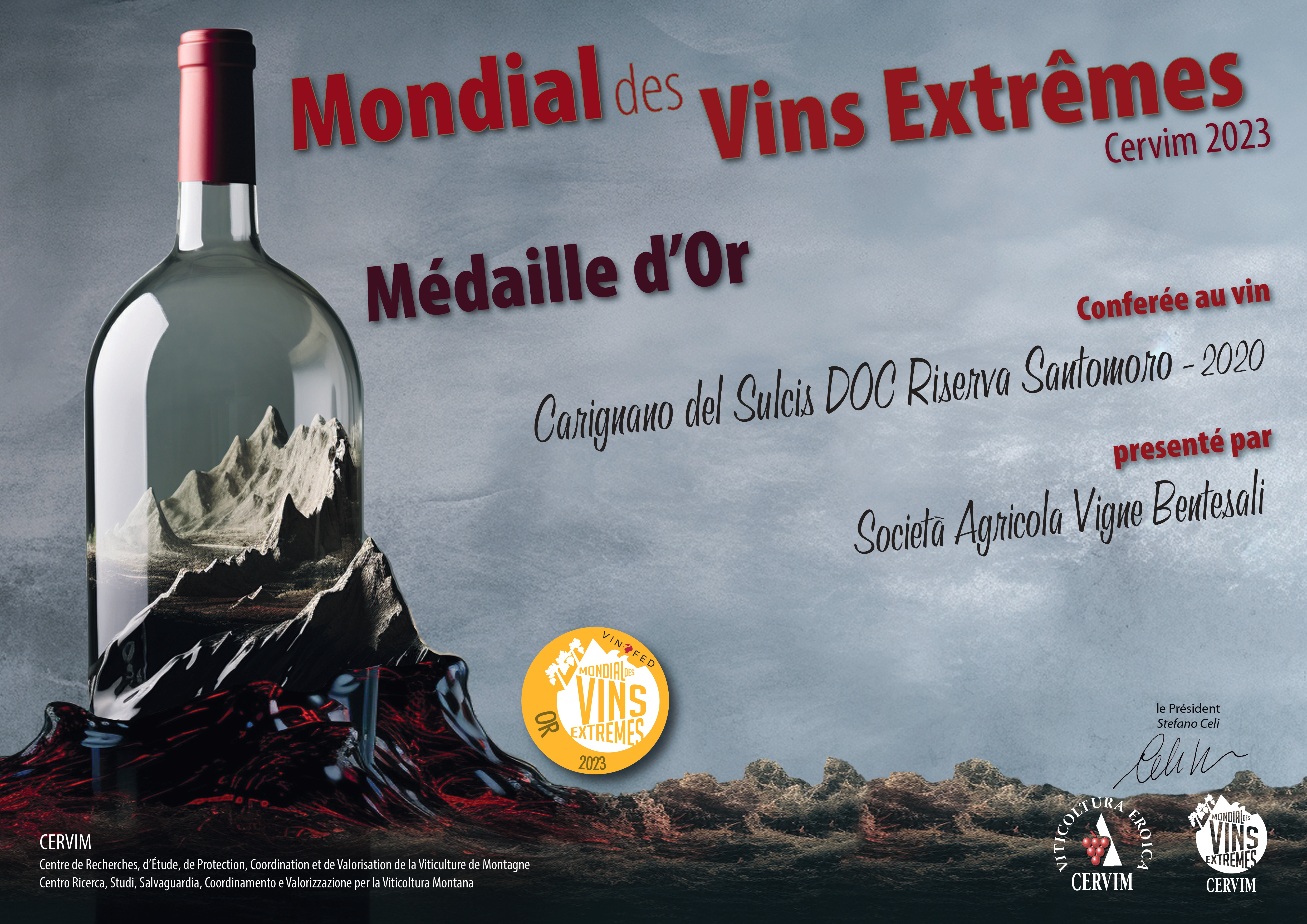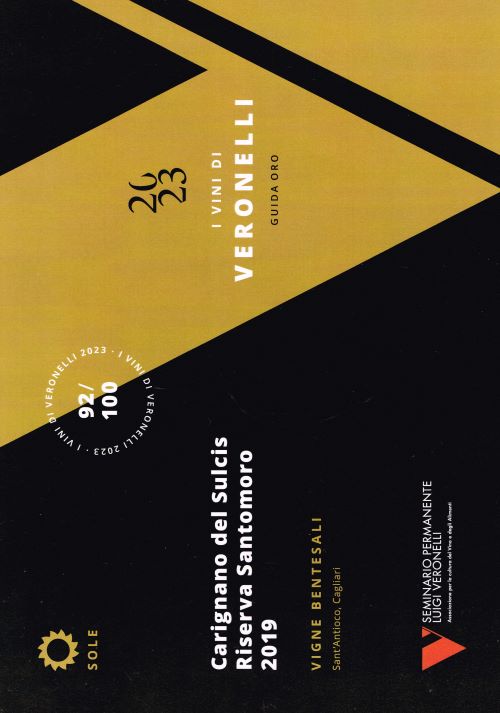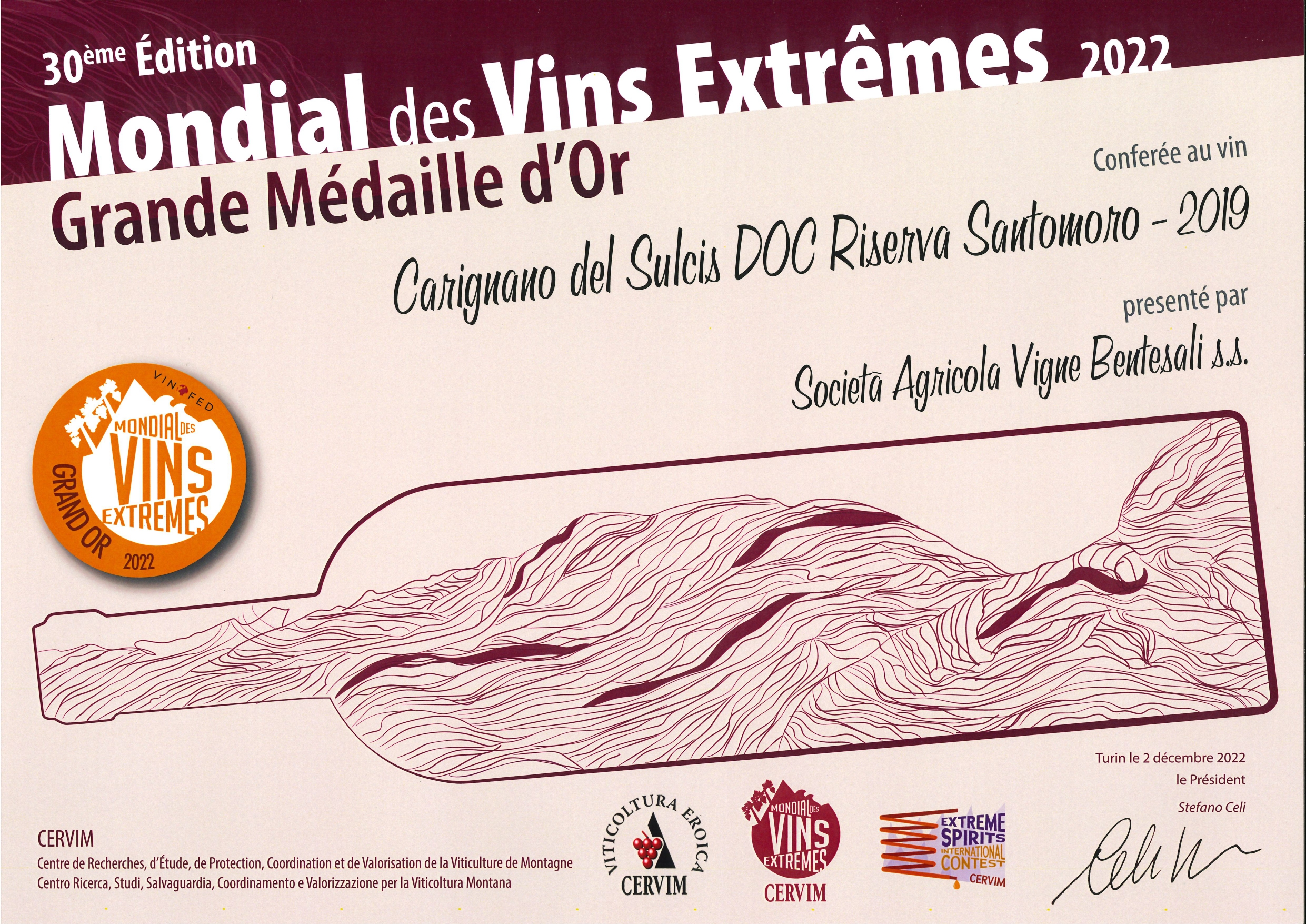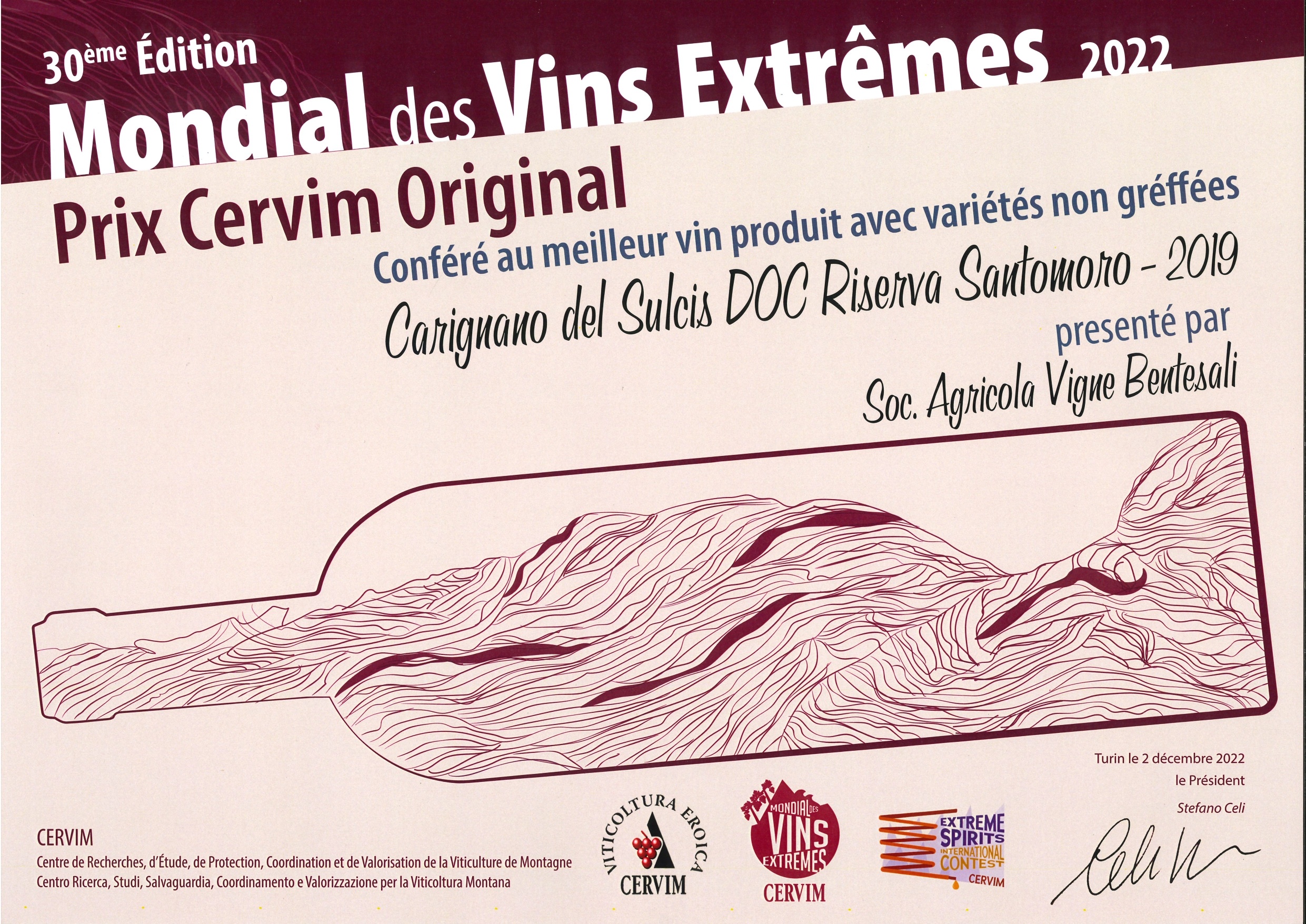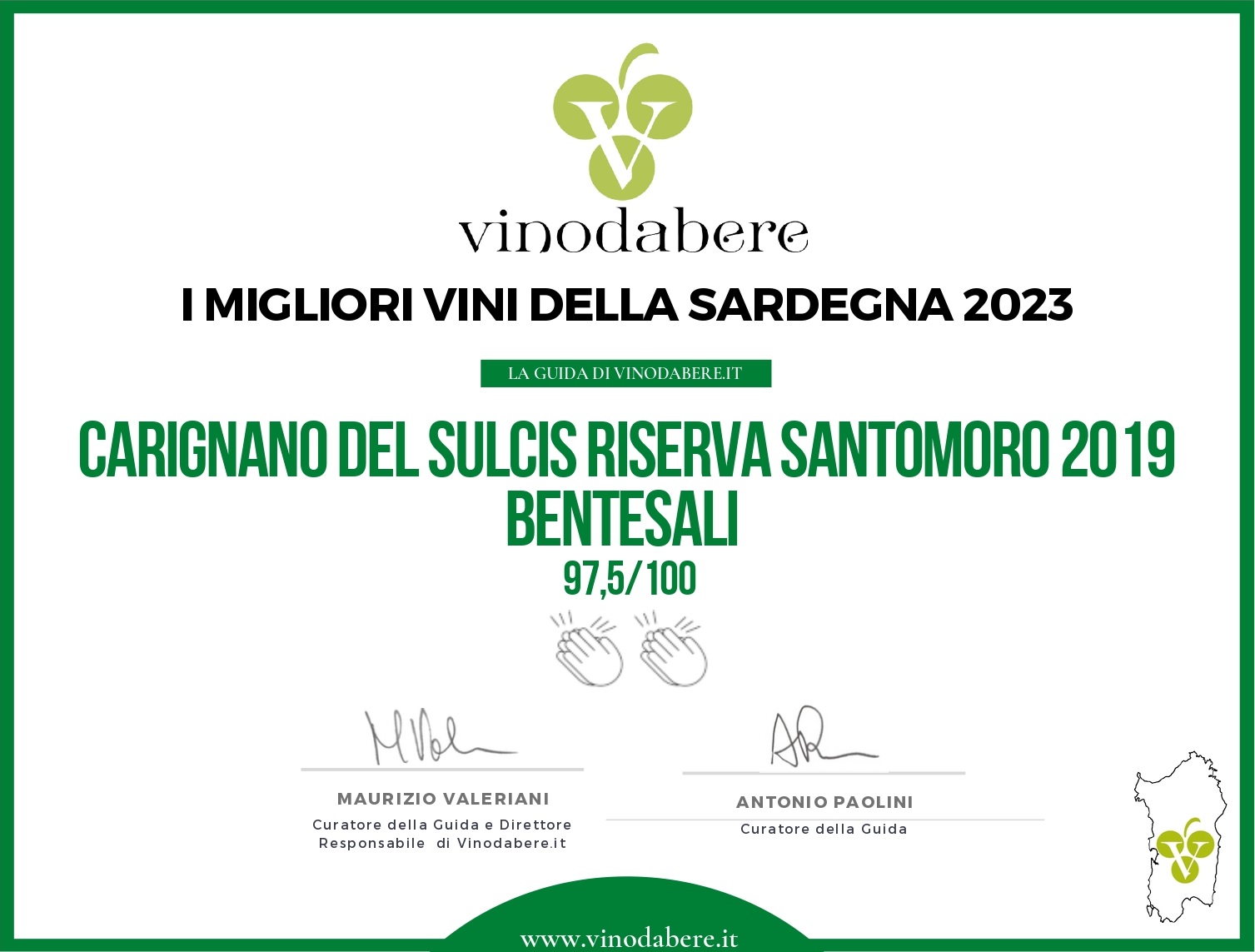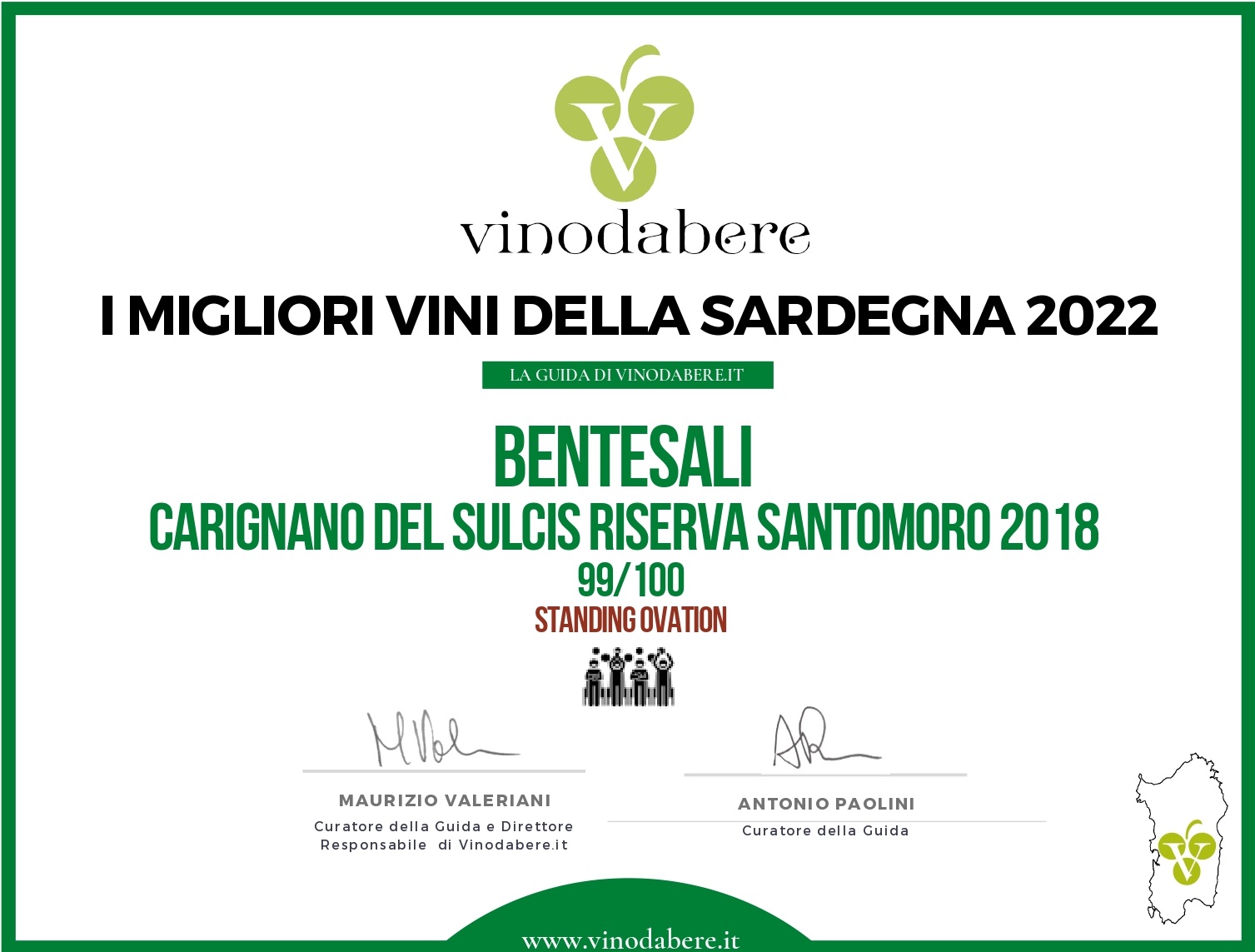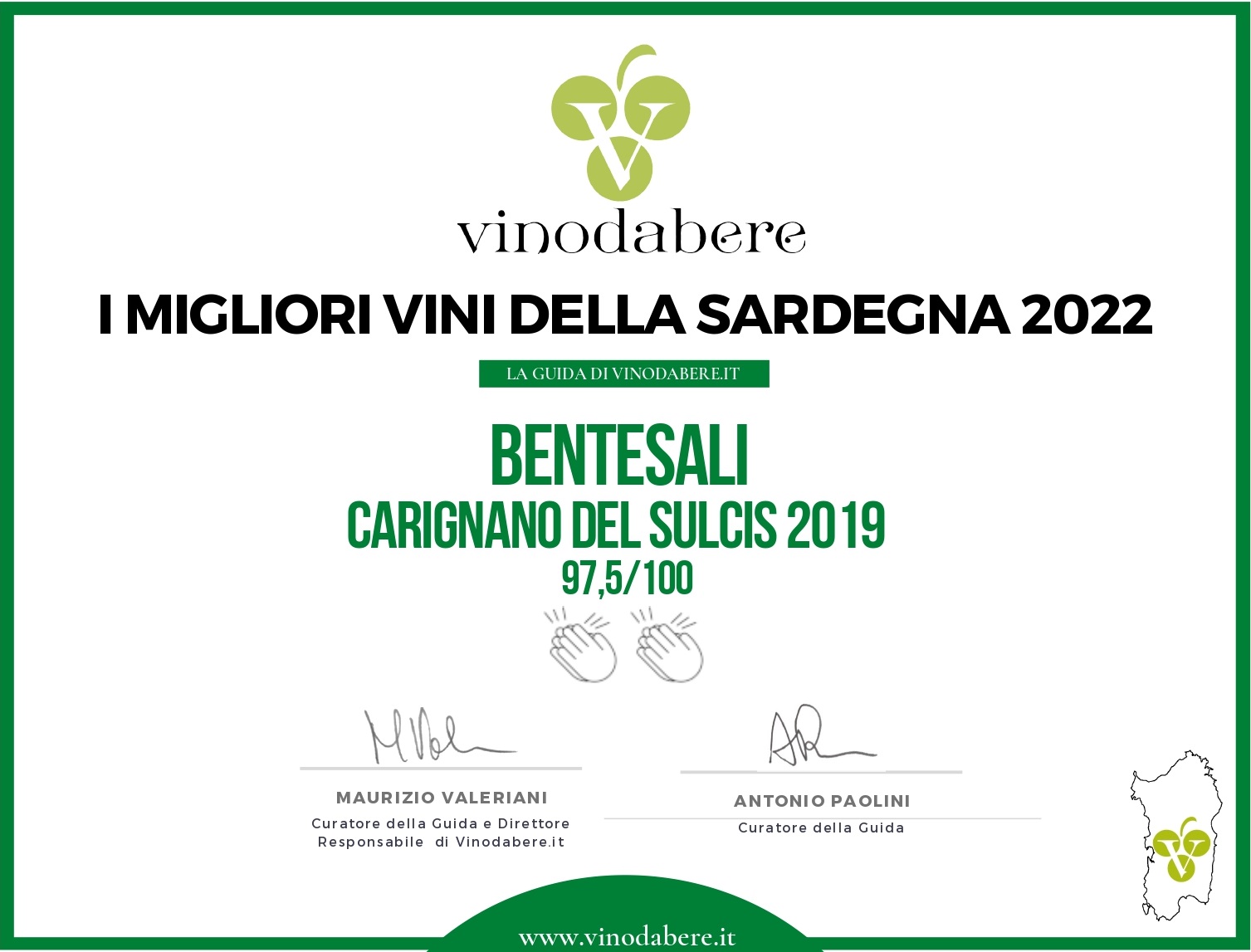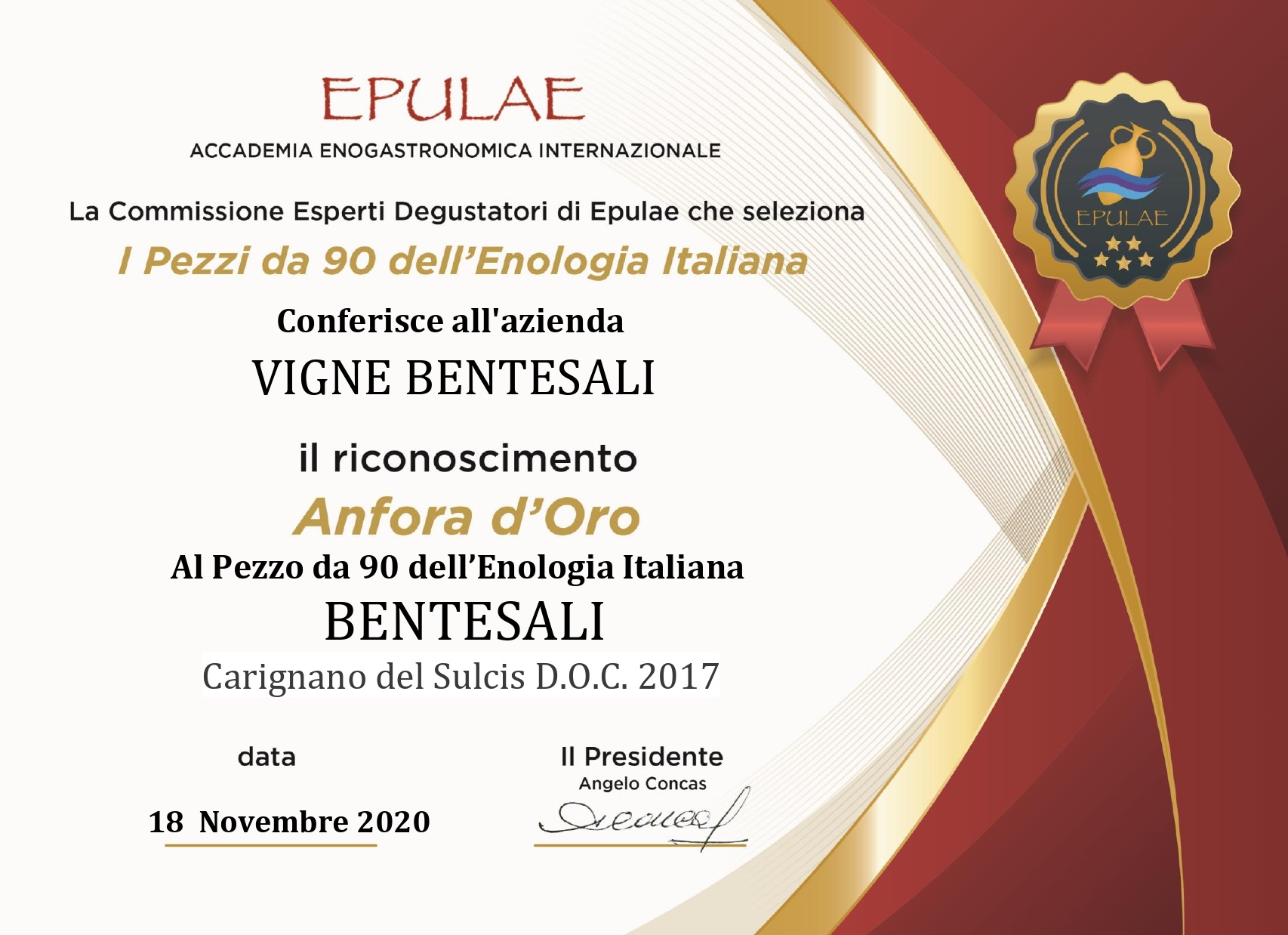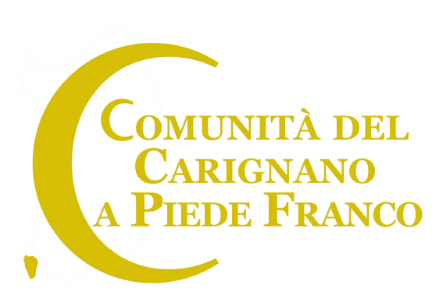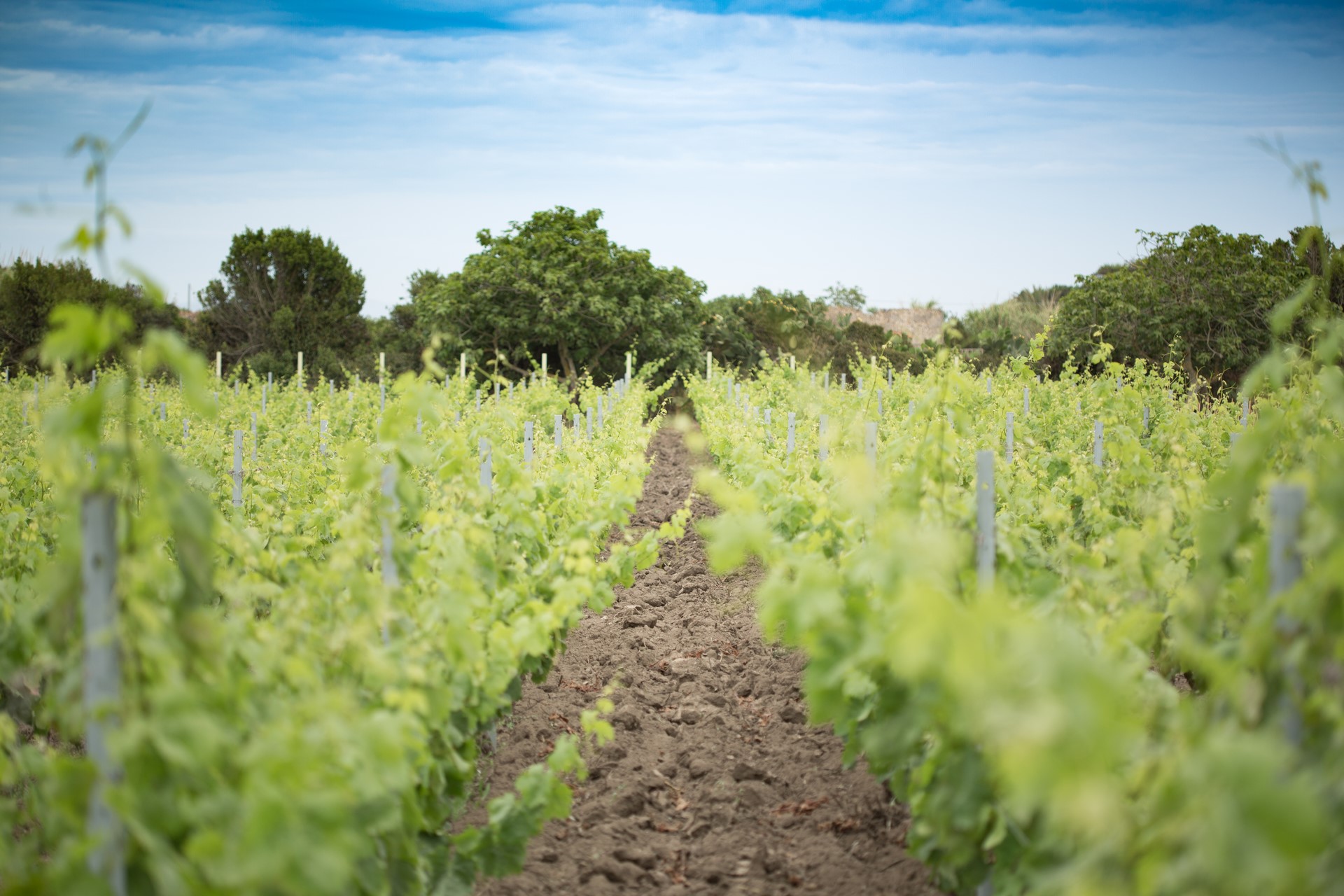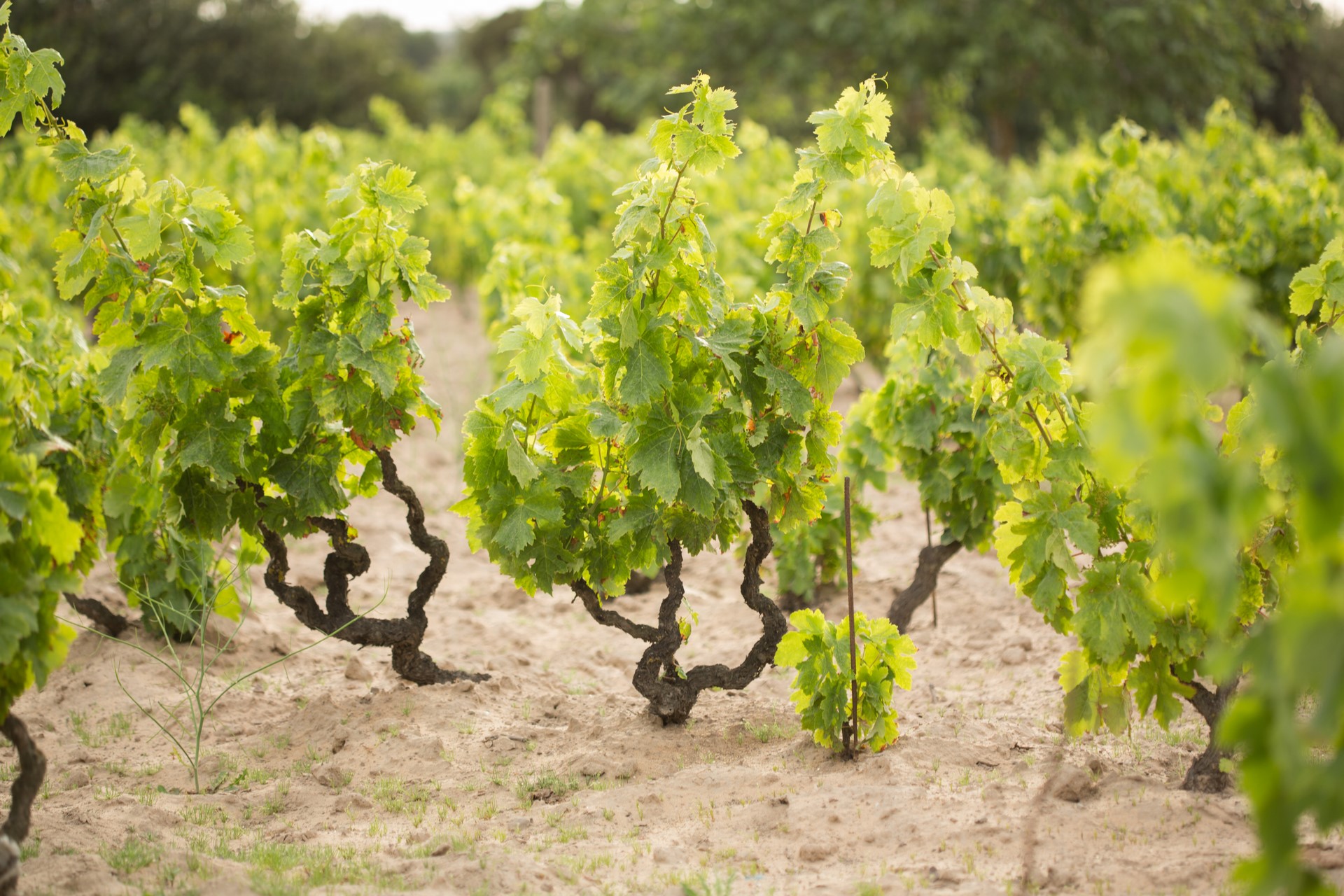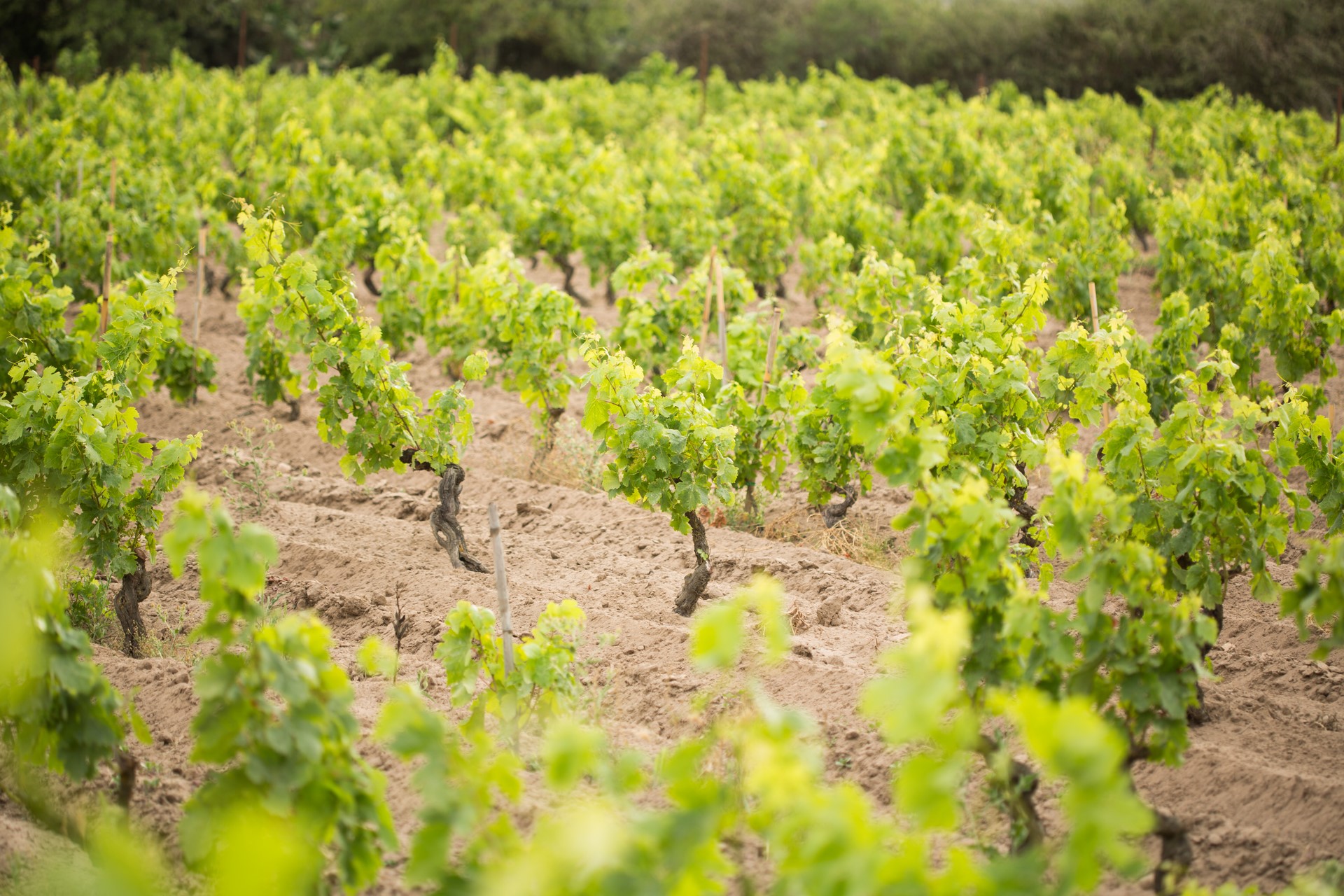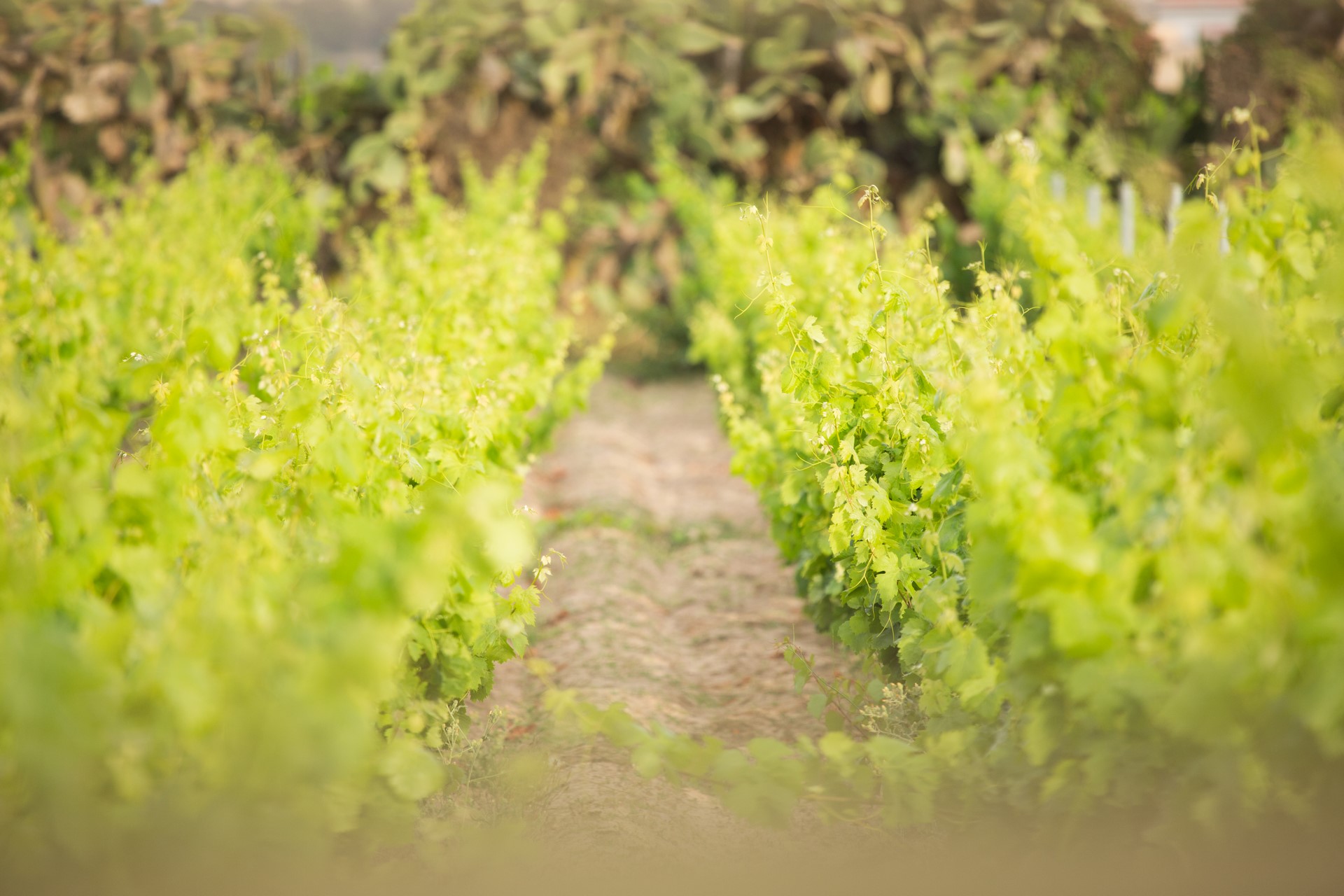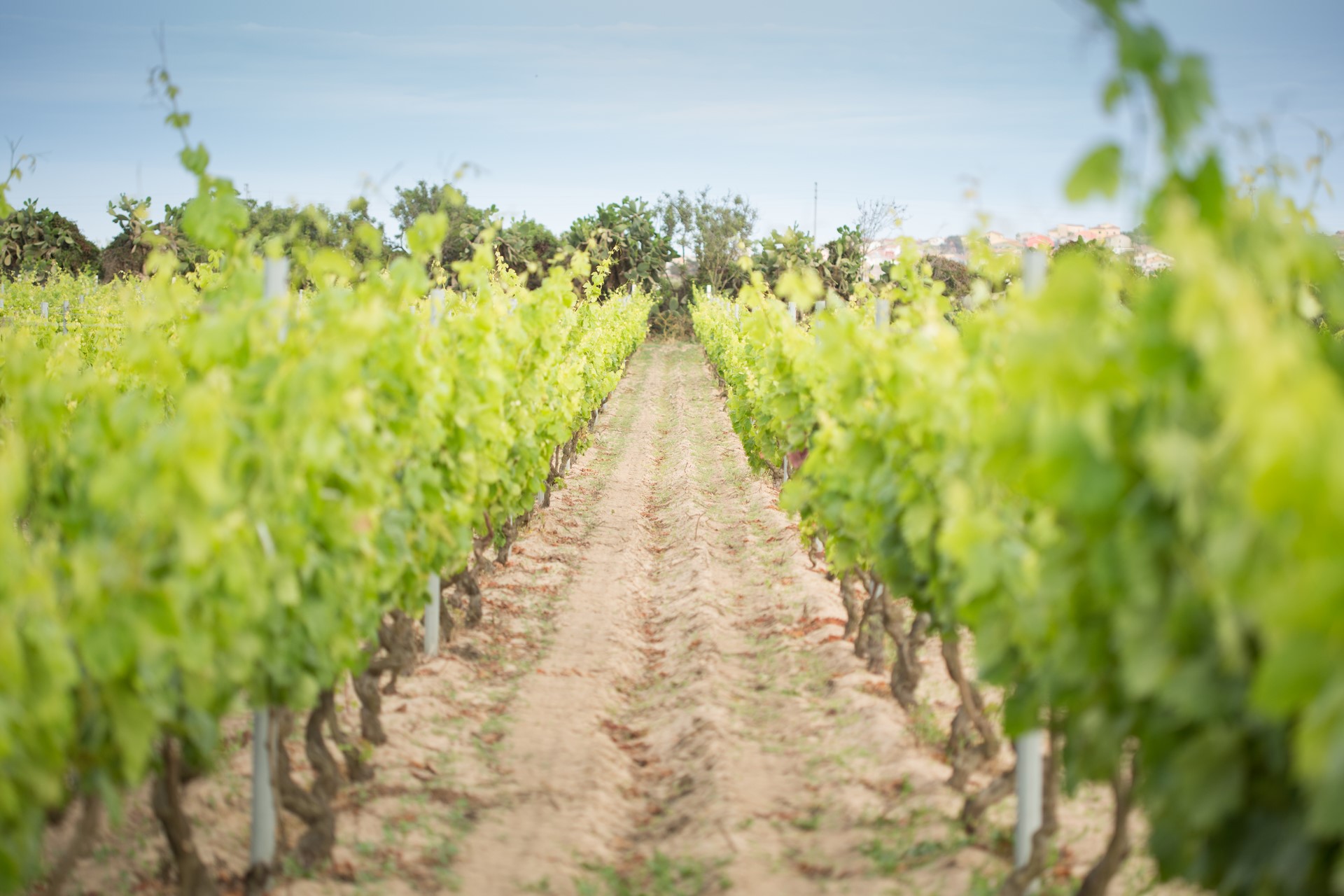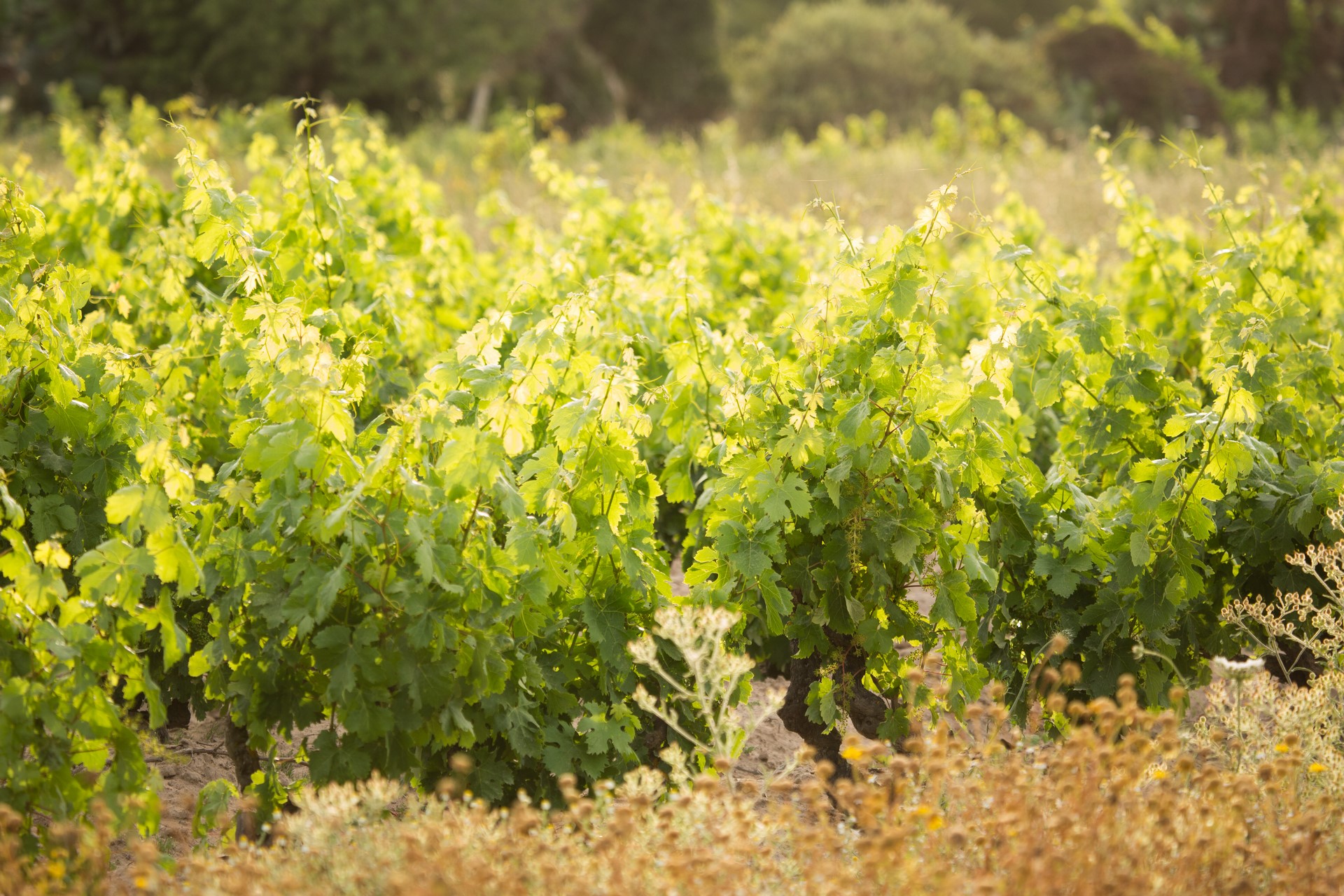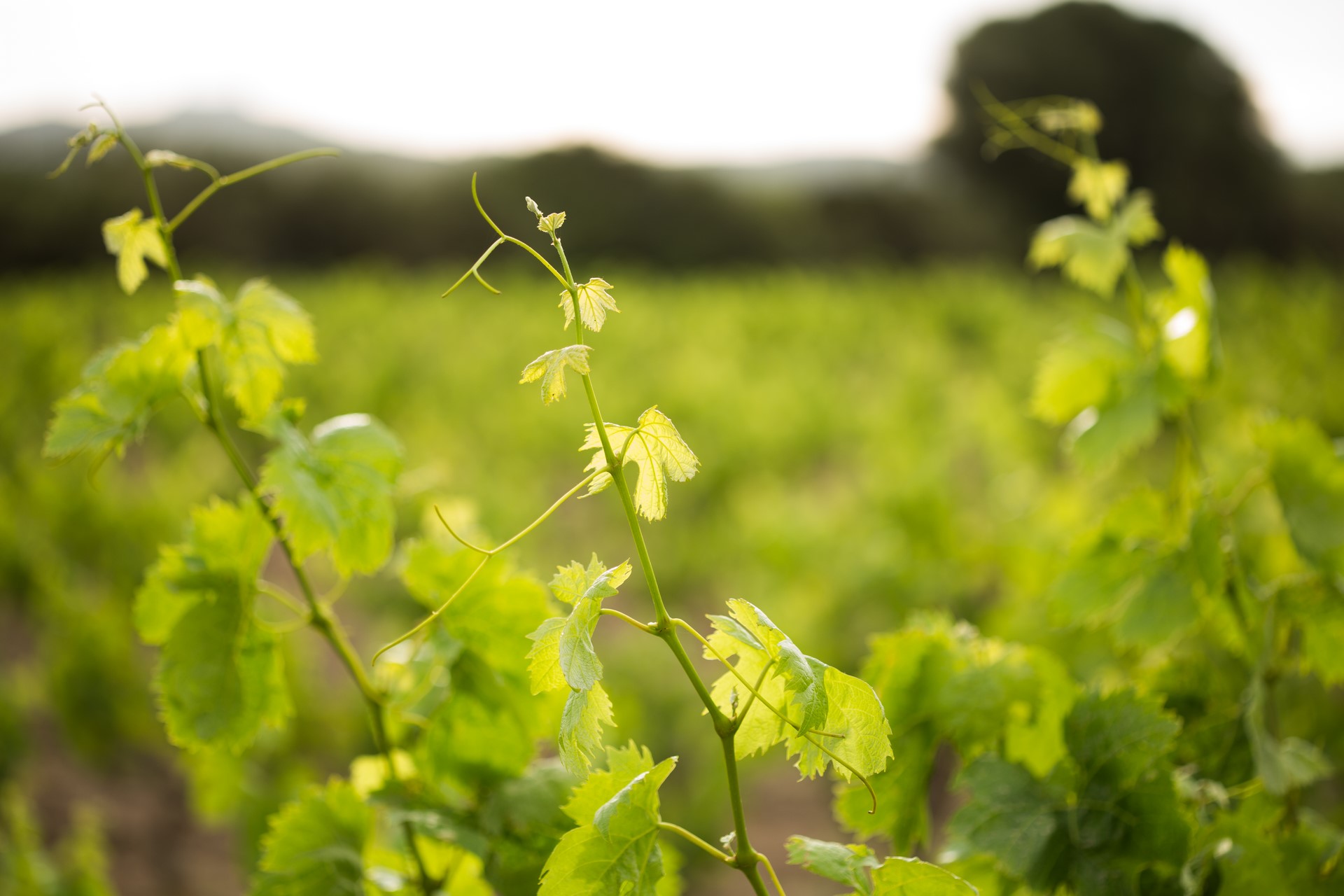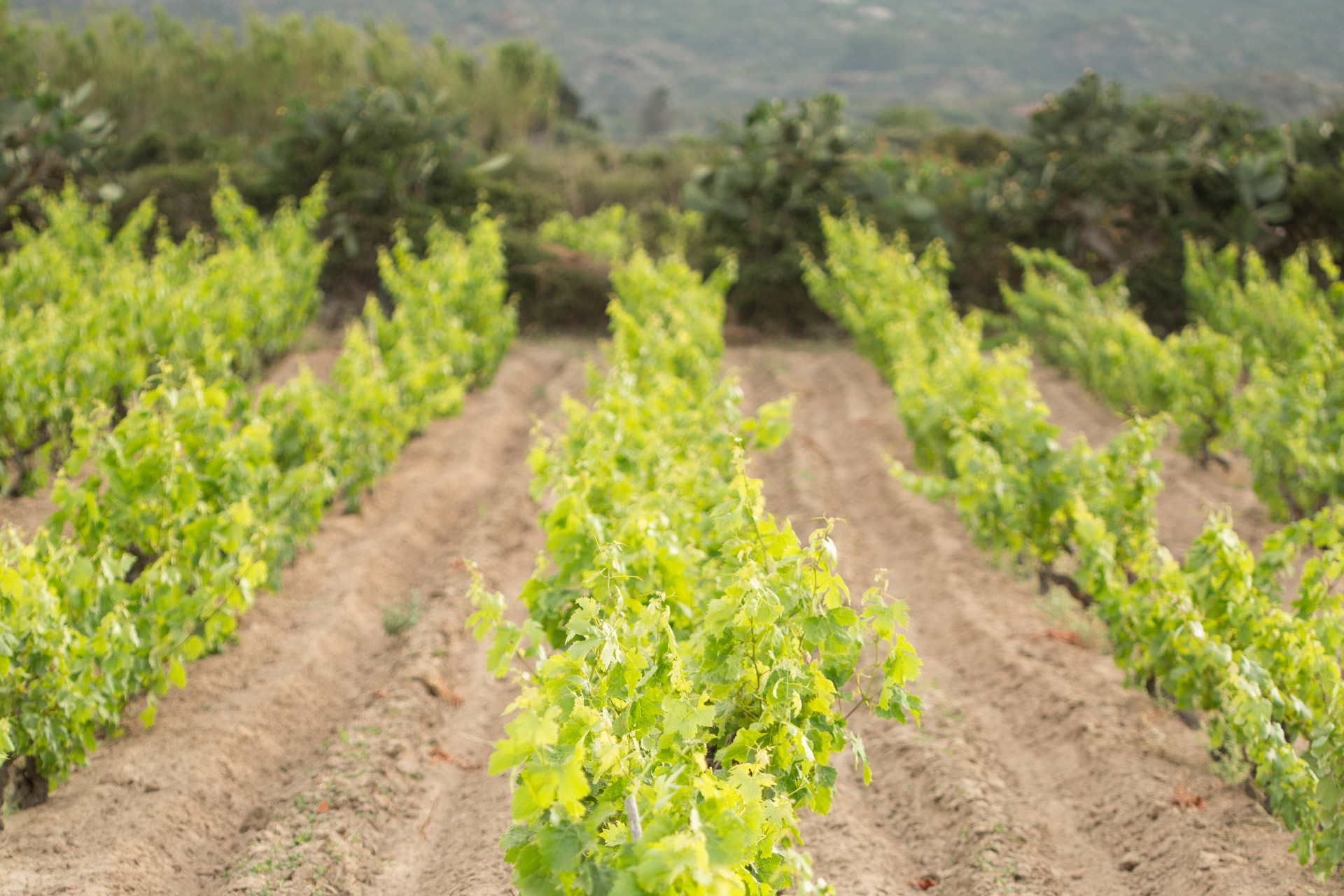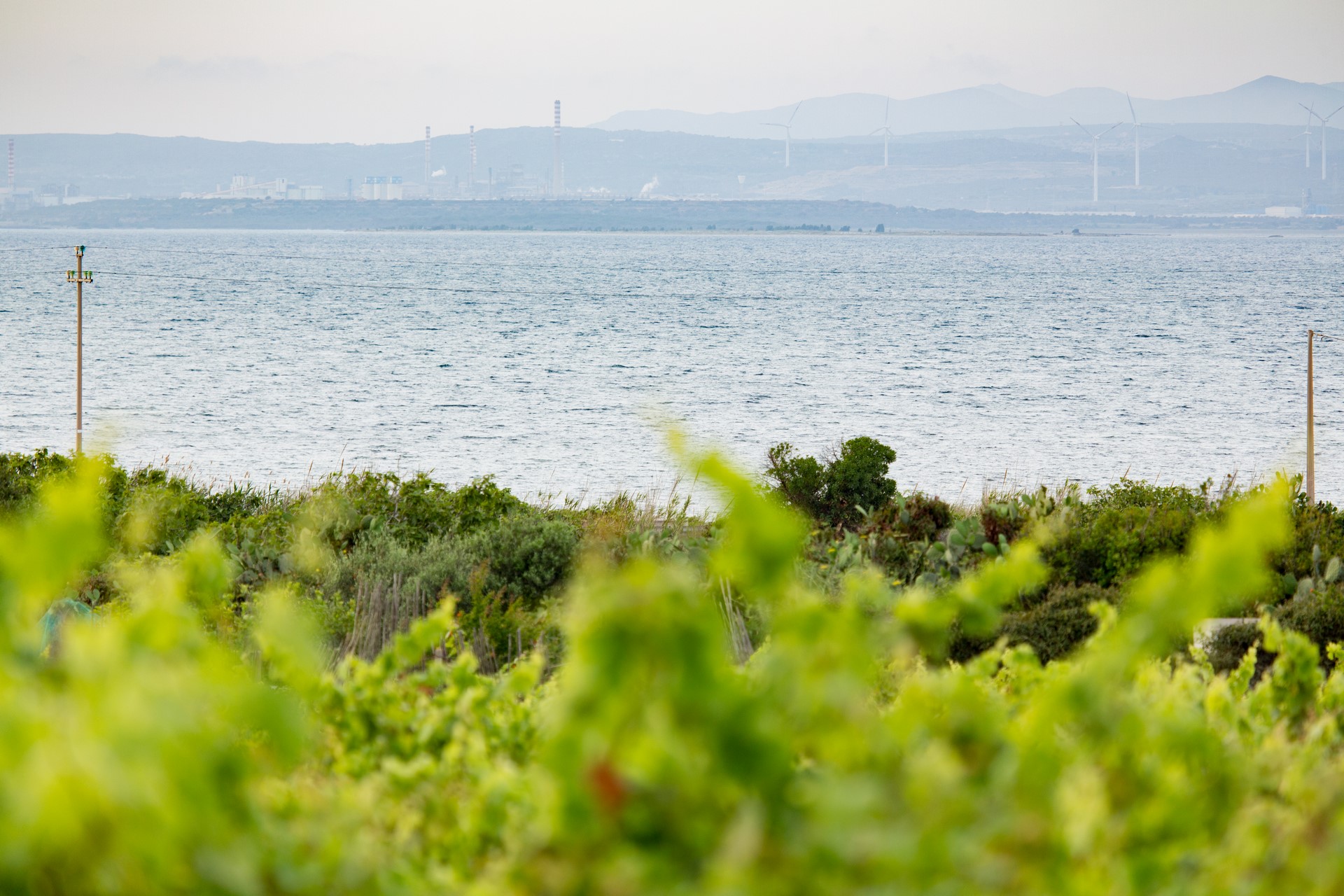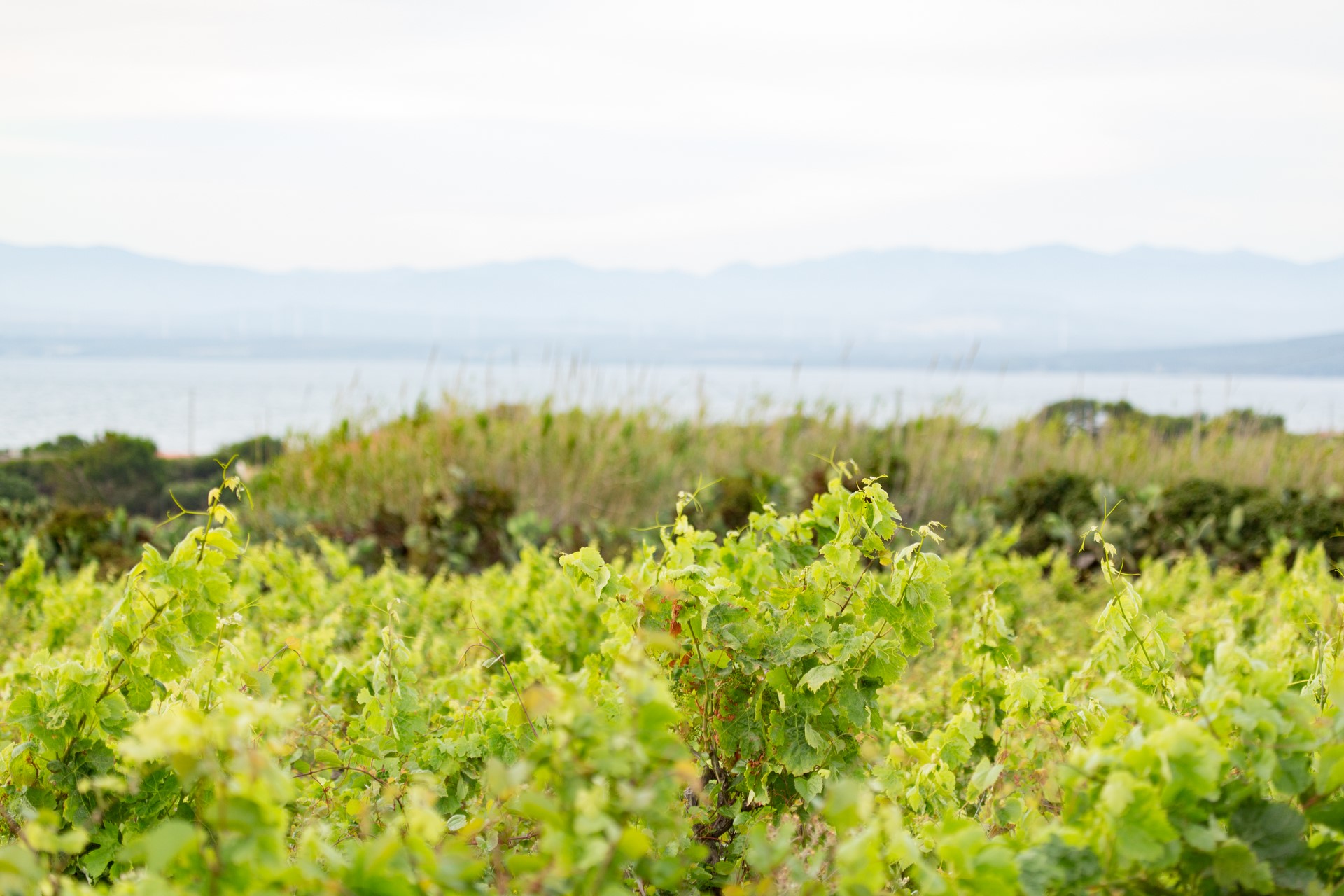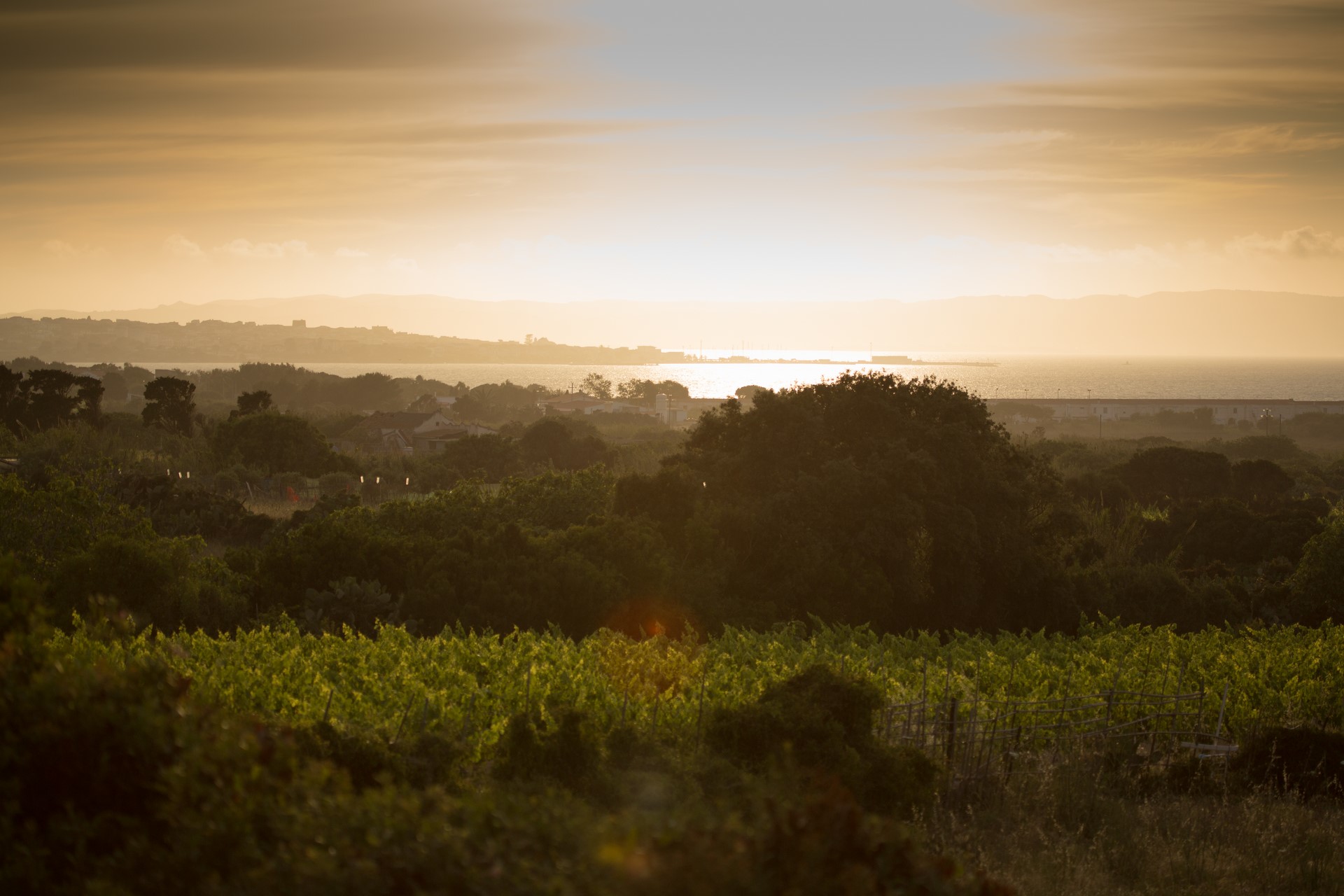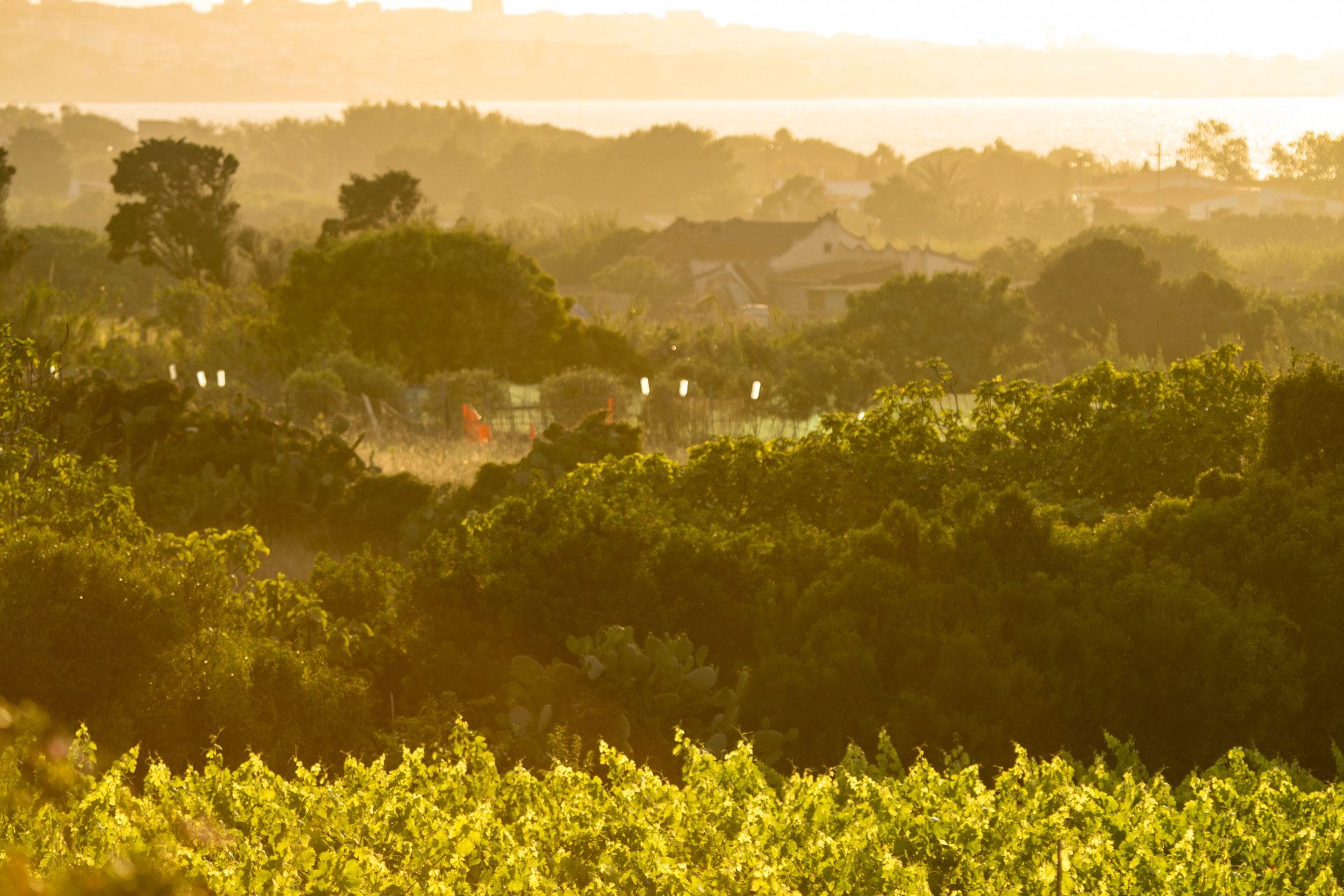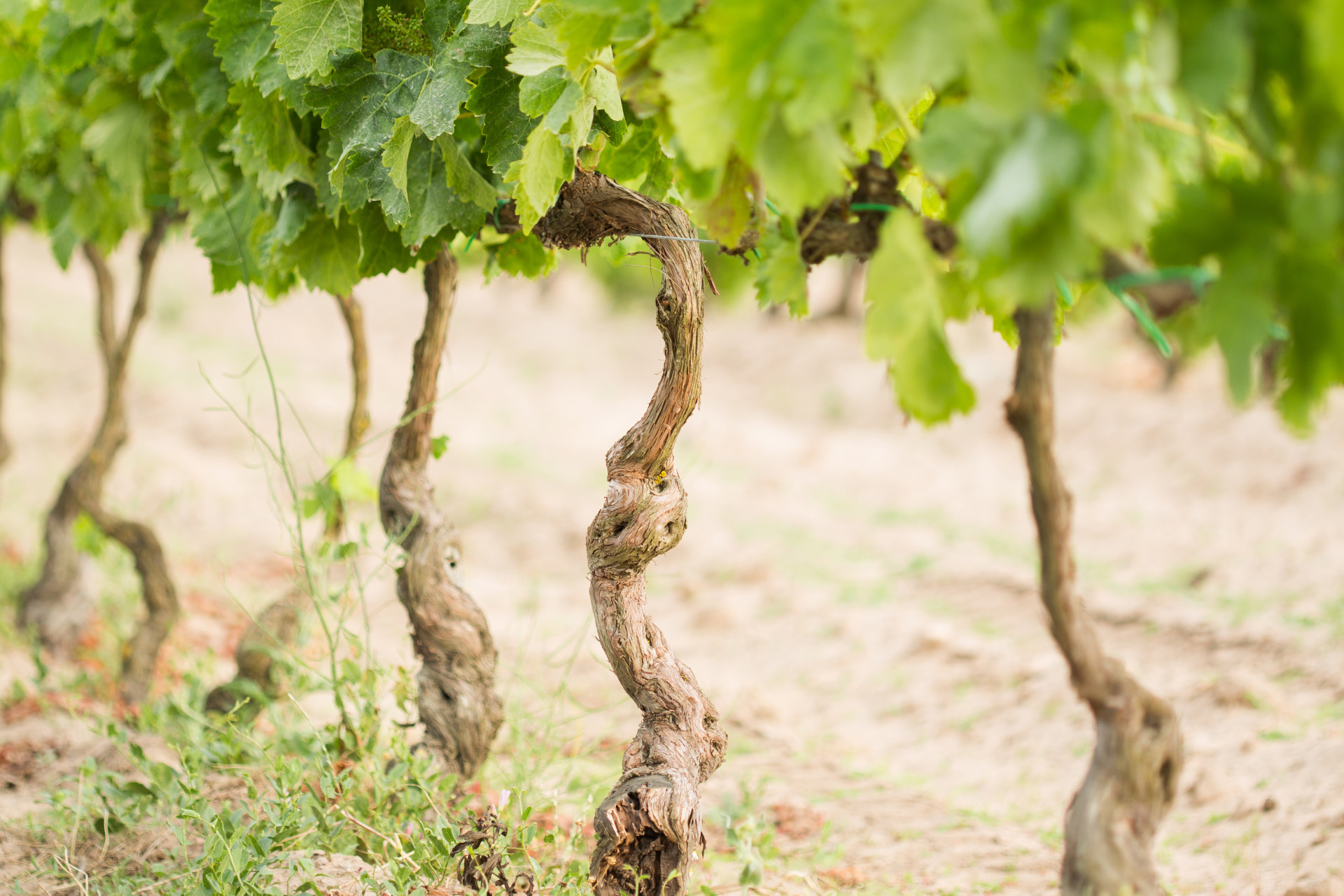TERRITORY
The Island of Sant’Antioco is located in the Sulcis-Iglesiente area, in the south-western coast of Sardinia, to which it is connected with a thin isthmus, created by marine sediment.
With a surface of 109 square kilometres, it is the largest island in Sardinia and the fourth largest in Italy.
The island is divided between the two municipalities of Sant’Antioco and Calasetta and it is located some 90 km from Cagliari.
The area’s Mediterranean climate is characterized by short winters and hot, dry summers, mitigated only by the cool north-west wind.
The island was formed during the Miocene, around 25 million years ago, and was separated from Sardinia because of tectonic movements. Many million years later, the island acquired the present morphology: mainly flat, with calcareous and trachyte rocks and a sporadic Mediterranean vegetation.
VITICULTURE IN THE ISLAND
The sandy lands of the island are suitable for the cultivation of the vine “franca di piede”, which means “with the original roots”, therefore without the use of the American vine’s rootstock. This method insures a unique organoleptic heritage to the grapes and allows the vineyards to achieve an excellent production even in an advanced age. The training system used in the centenary vineyards is the traditional Latin freestanding system, instead modern systems are employed in the new implants, notably the cordon spur system and the espalier system.
The Carignano variety was brought in the Island by the Phoenicians around the IX century BC. In the last three centuries, it has experienced the greater development, because the Island of Sant’Antioco provides all the ideal conditions for the production and growth of this particular variety. The origin and development of viticulture in Sant'Antioco and in Sardinia followed these cycles:
- Phoenician cycle: introduction of “Nuragus”, “Vernaccia”, and, according to some experts, “Nasco”, “Monica” and “Carignano”;
- Latin cycle: introduction of “Moscato” and “Apesorgie”;
- Byzantine cycle: introduction of “Malvasia” and some white noble grapes, like “Alvaregae” and “Gregubiancu”;
- Spanish cycle: introduction of “Cannonau”, “Bovali”, “Cagnulari”, “Carignano”, “Muristellu”, and according to some experts, “Vermentino” and “Nasco”.
